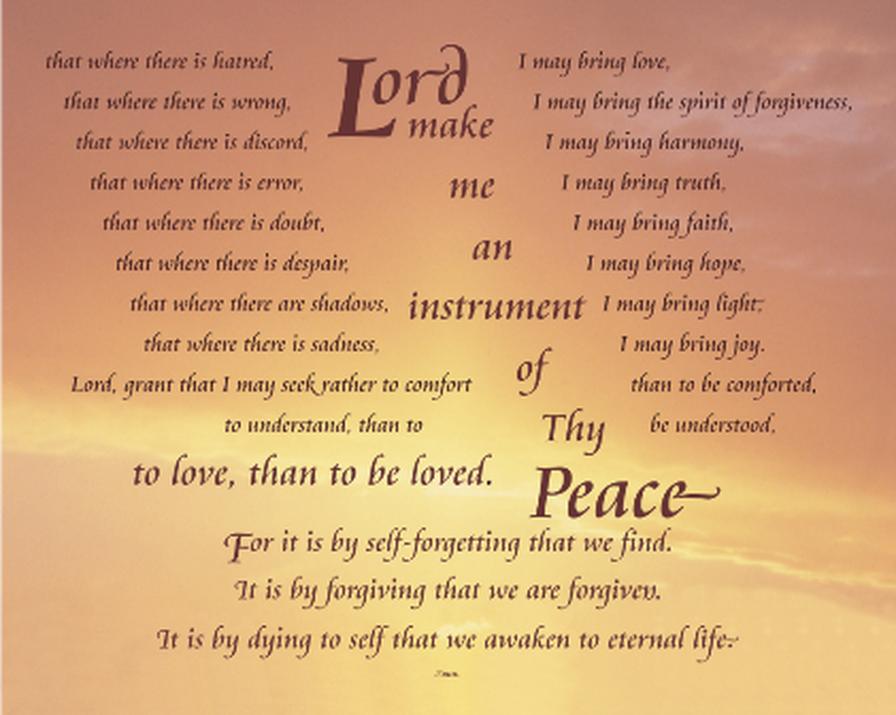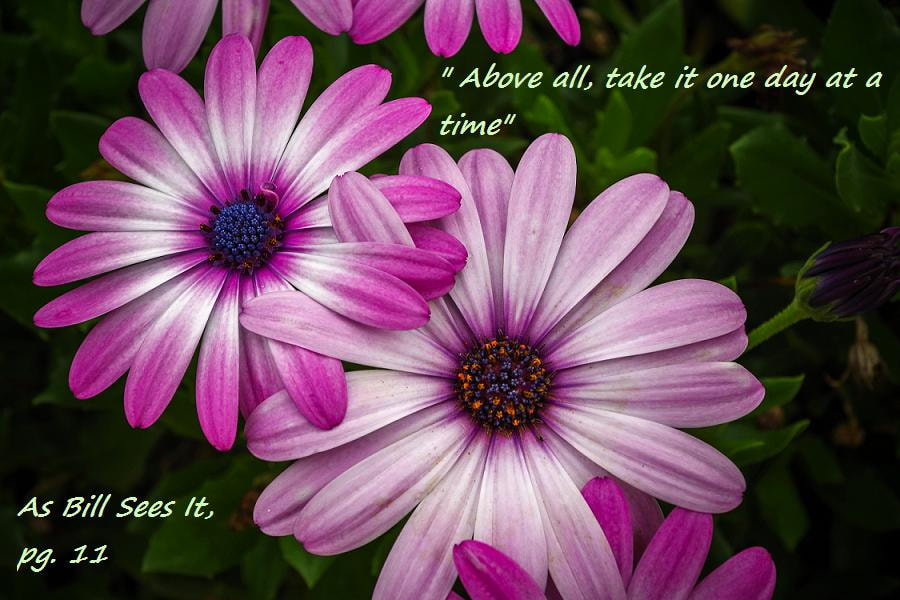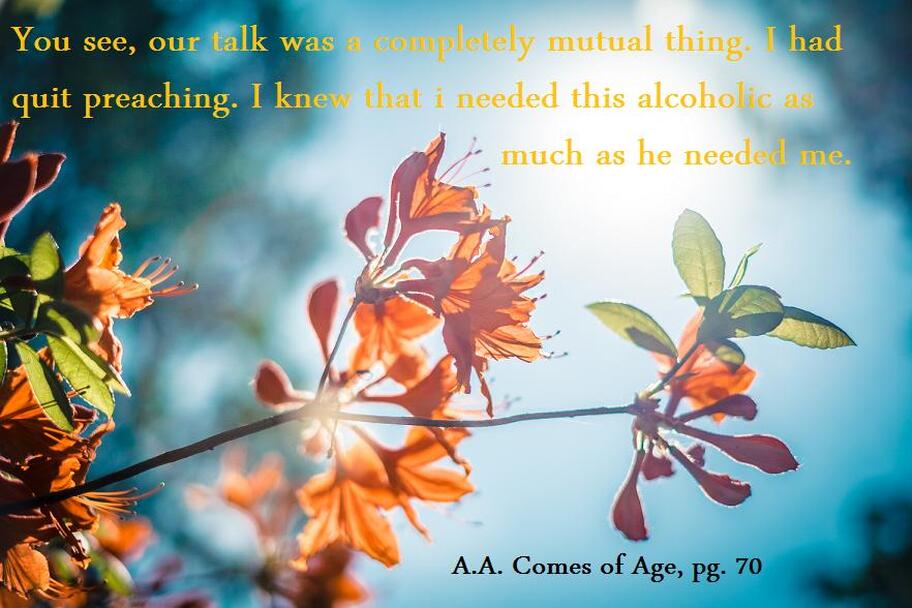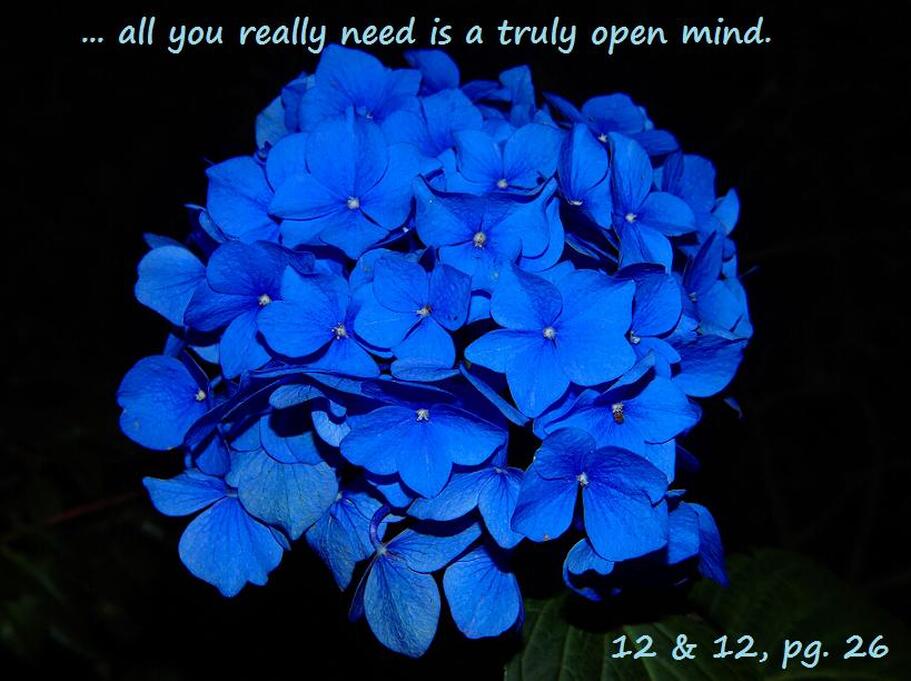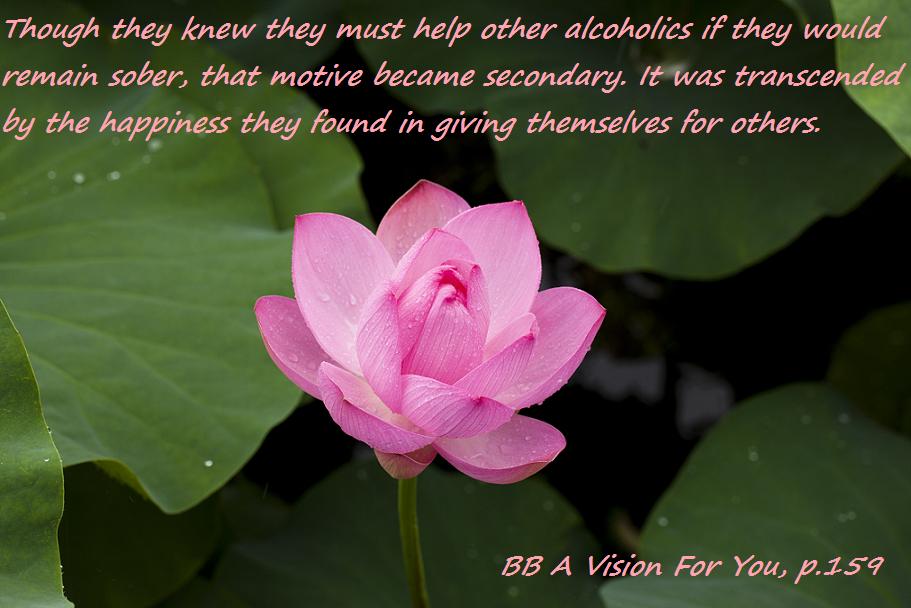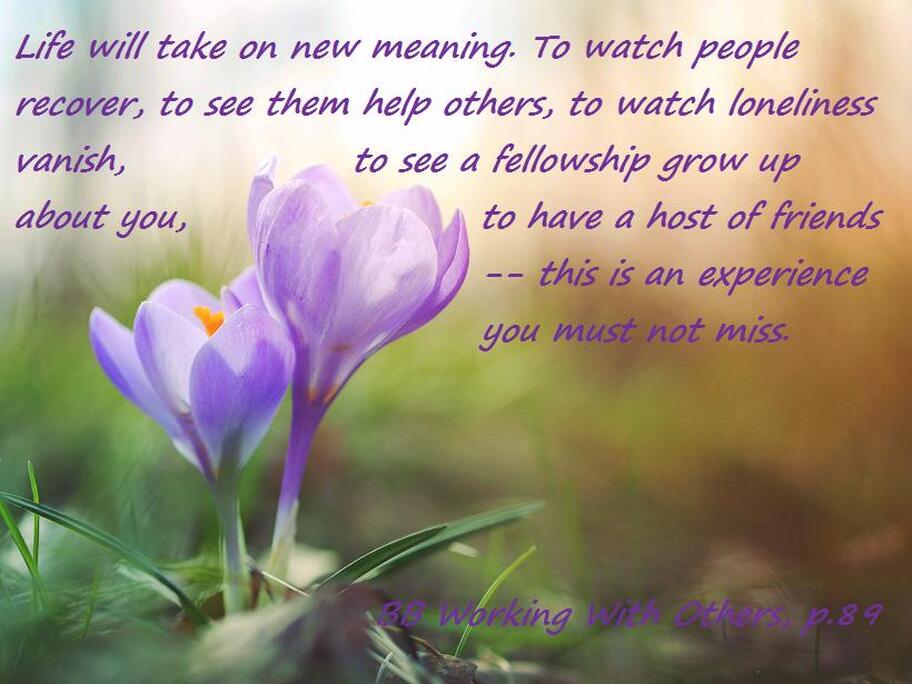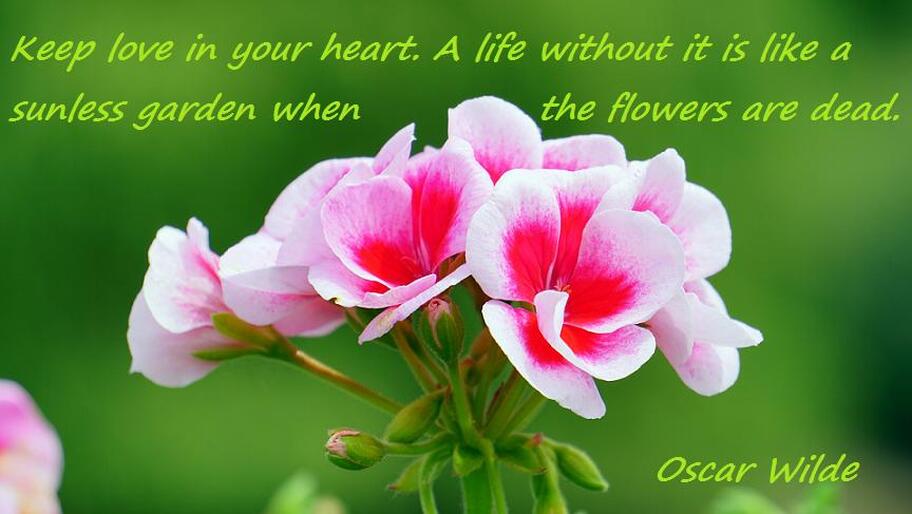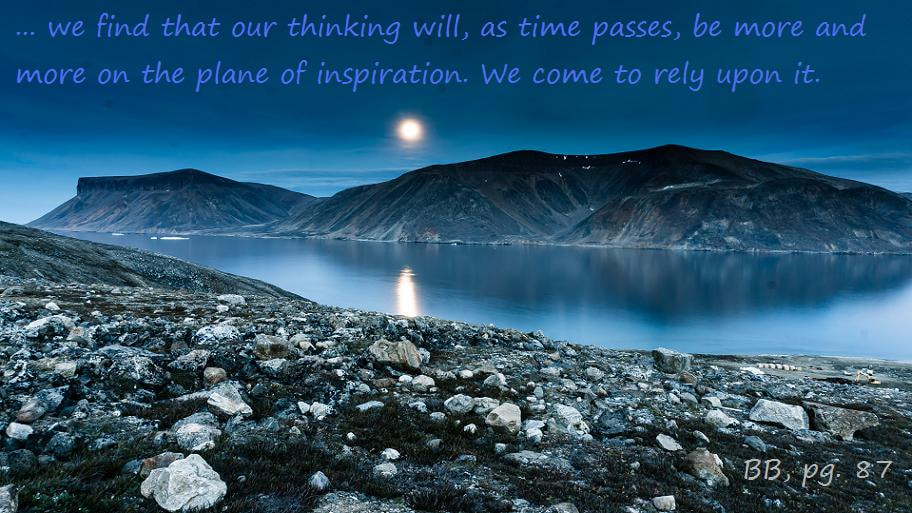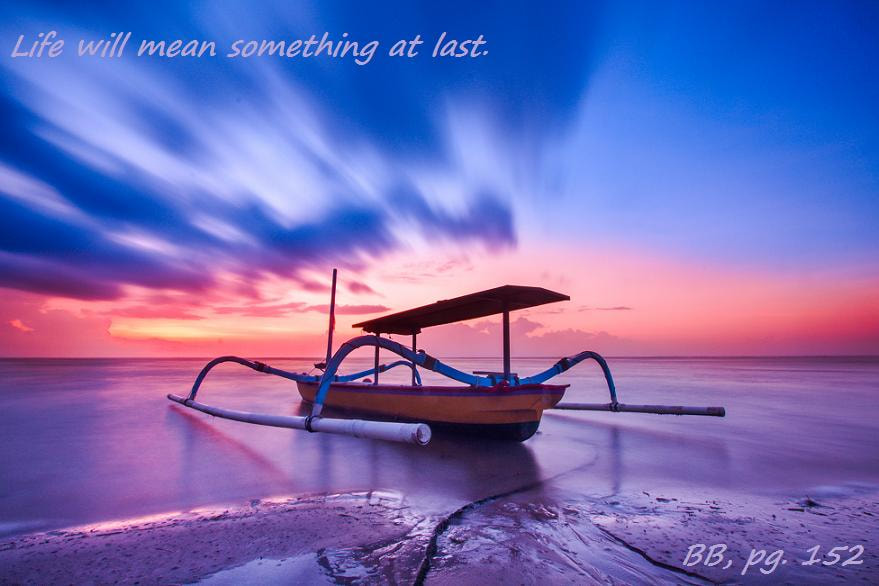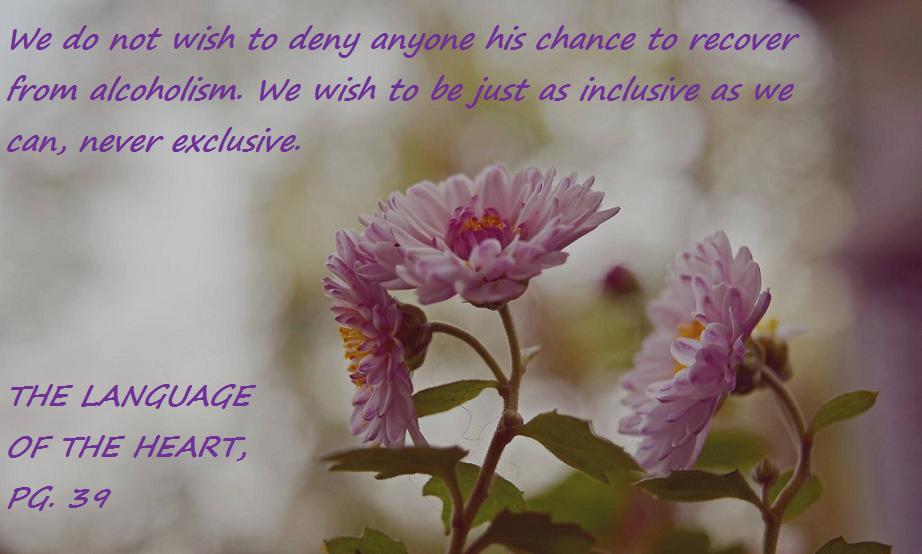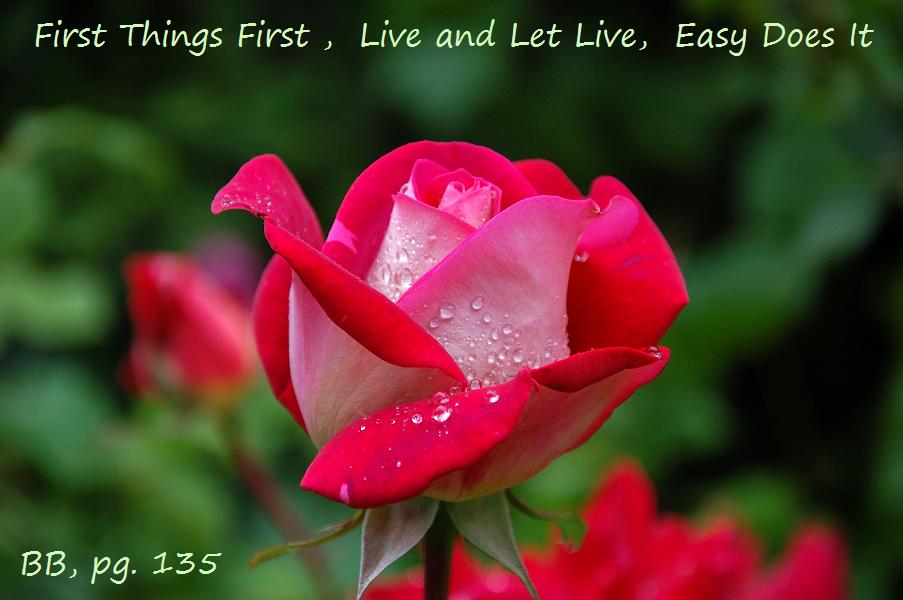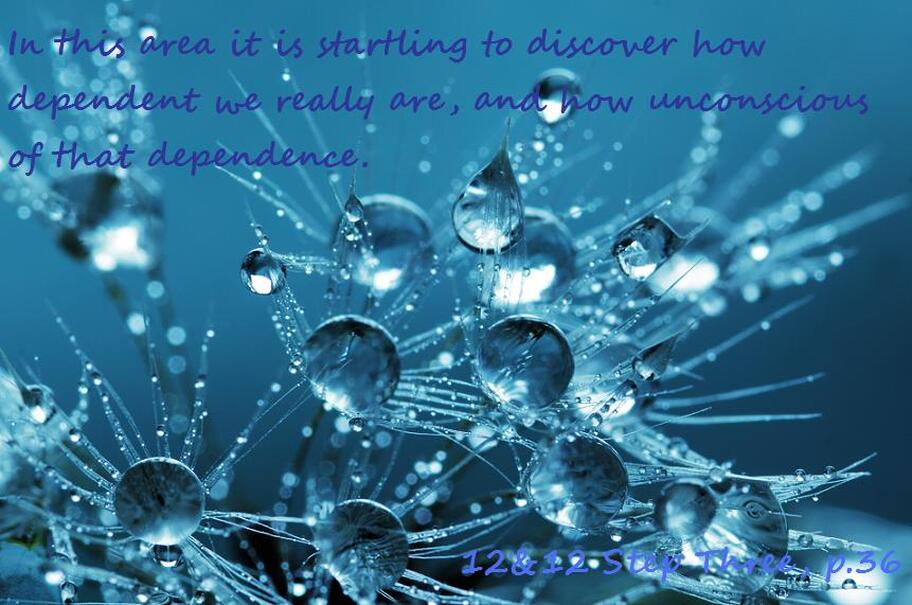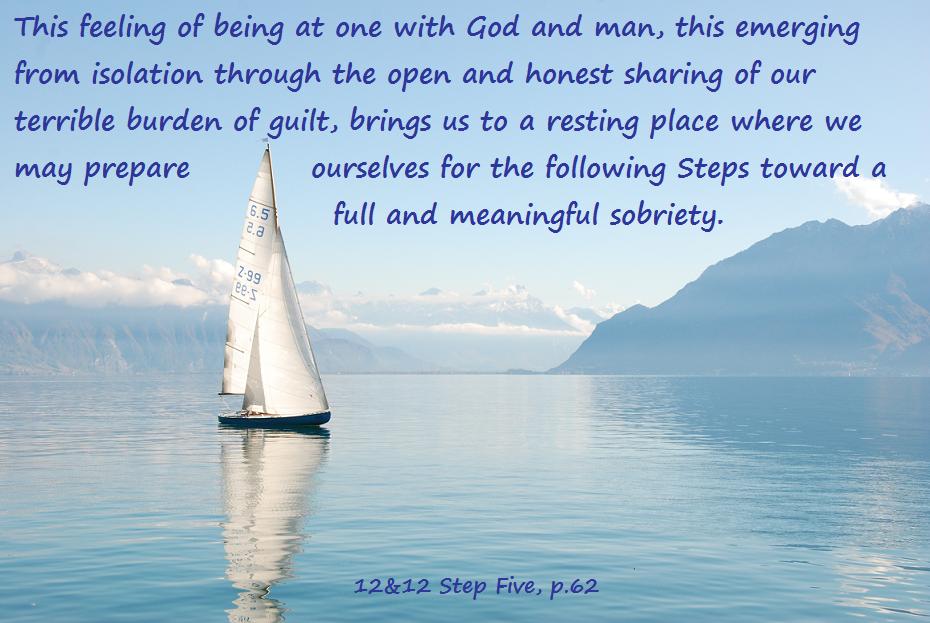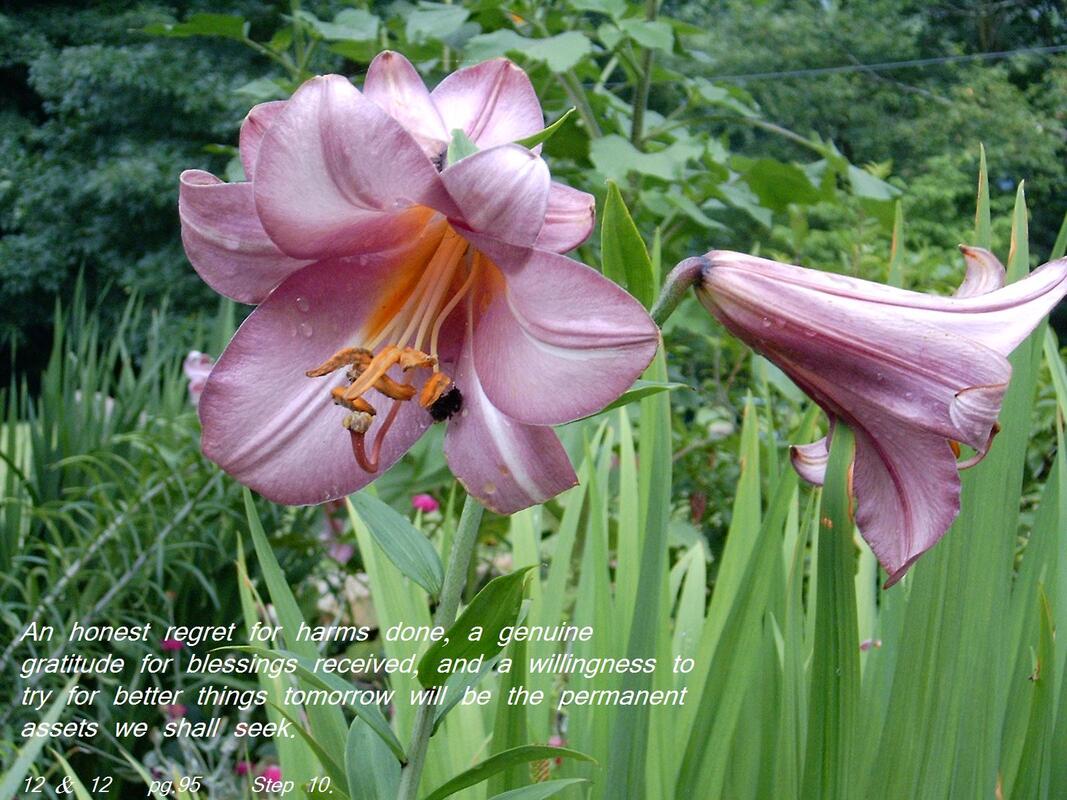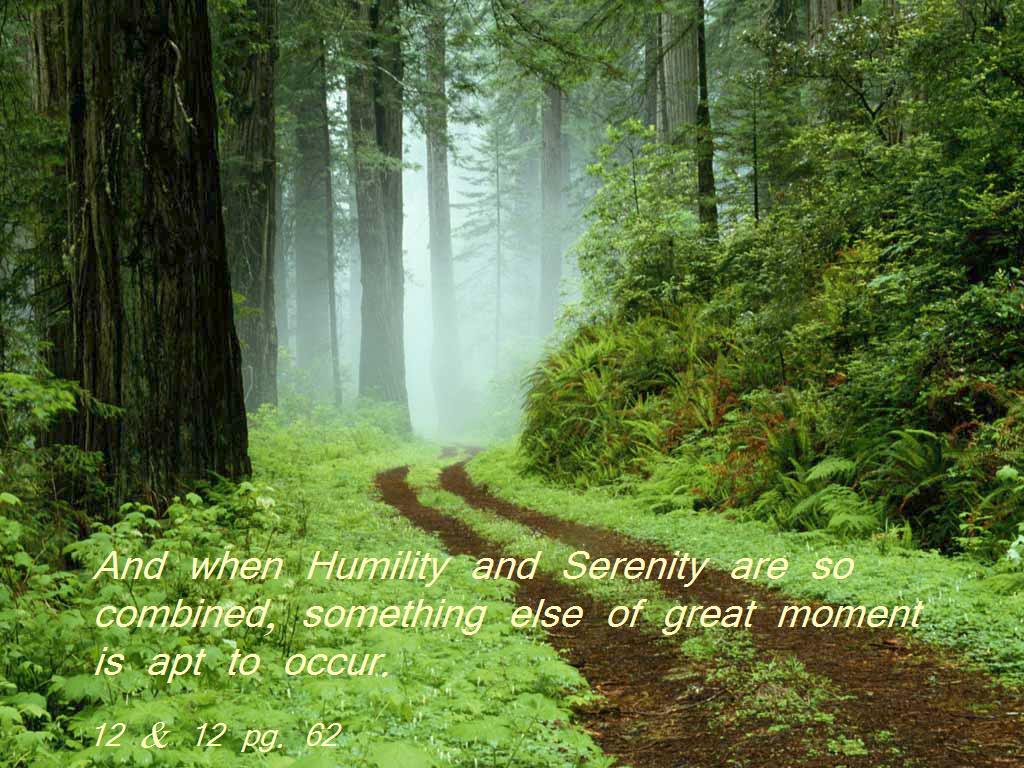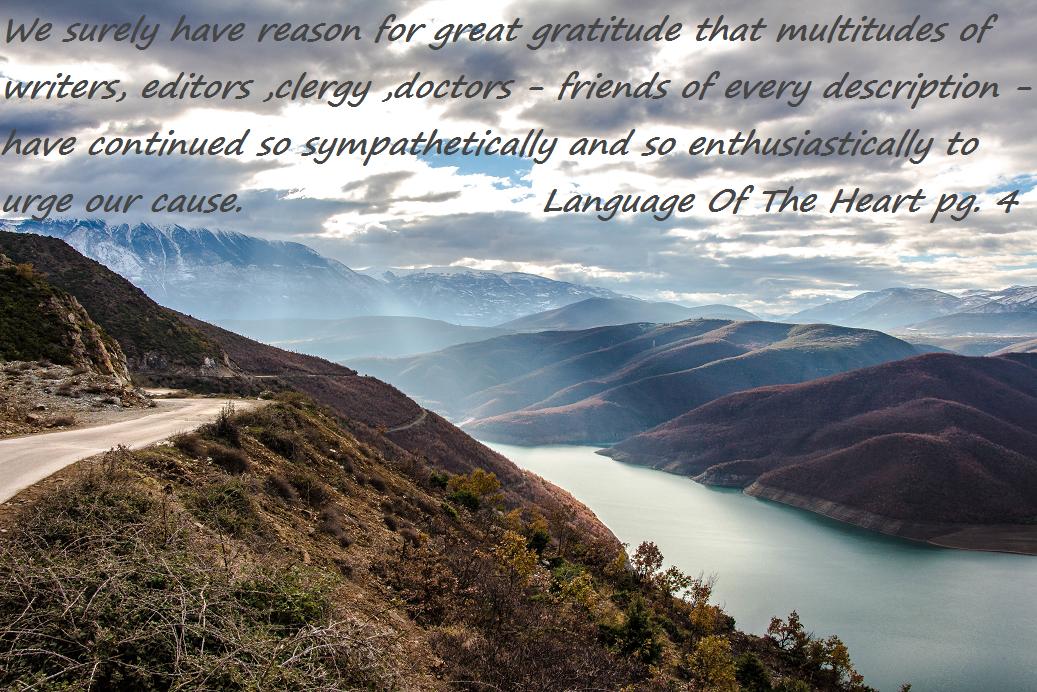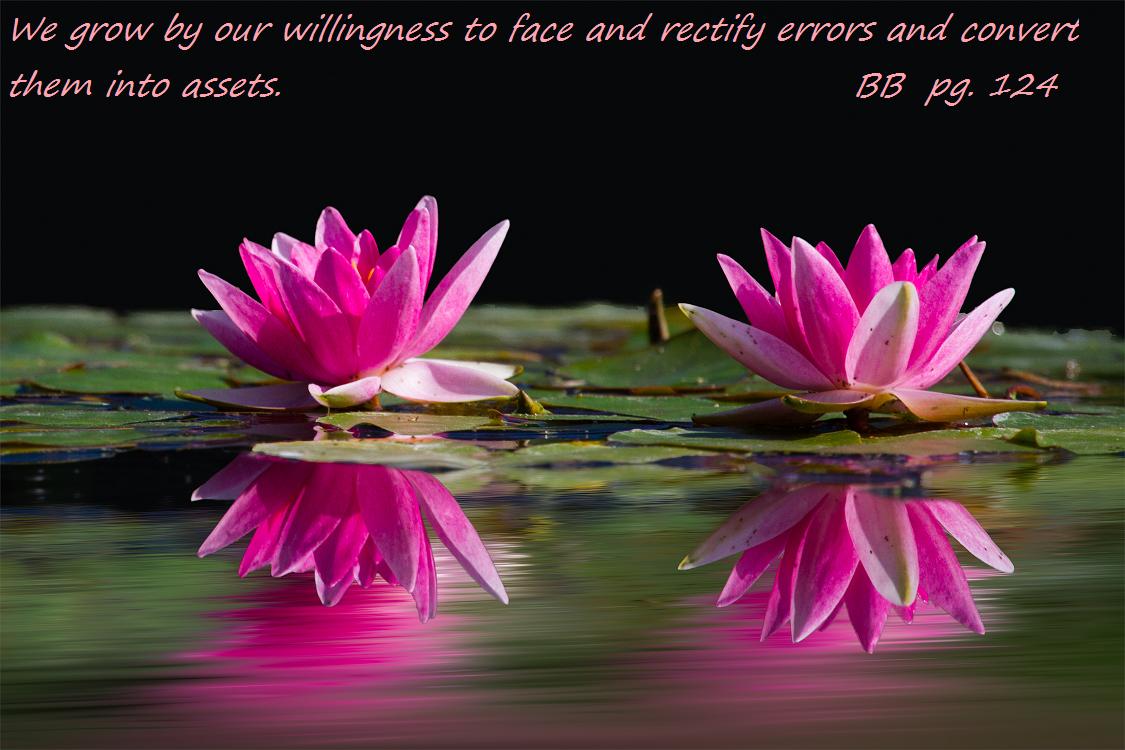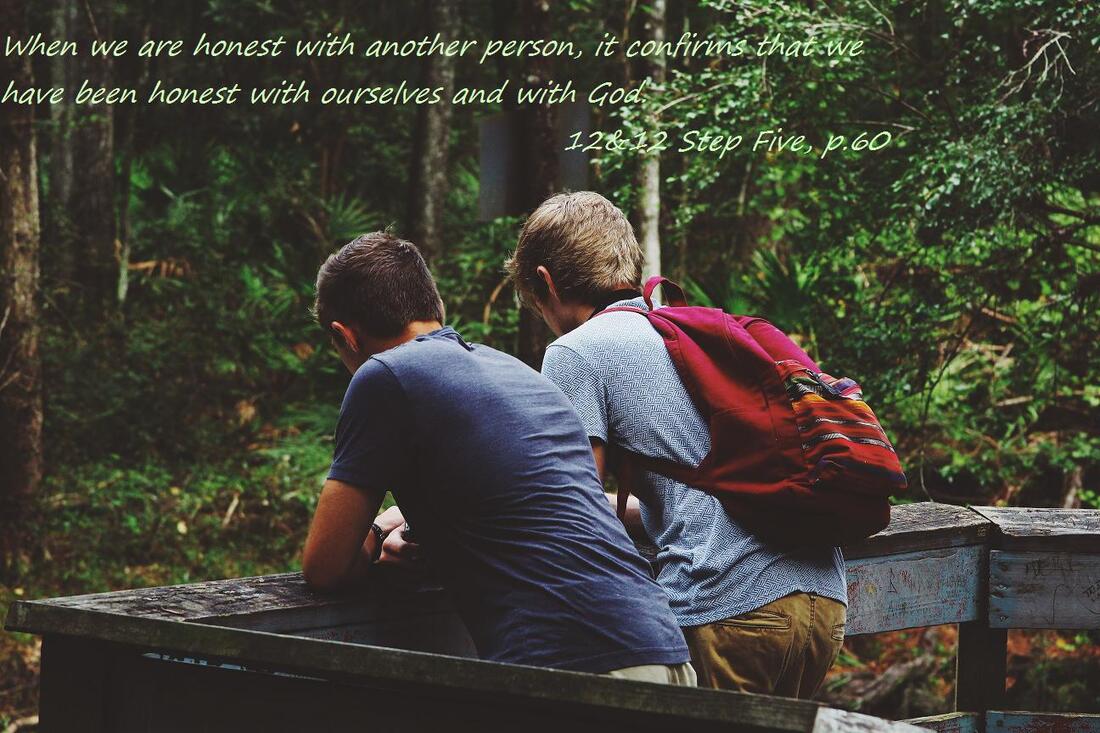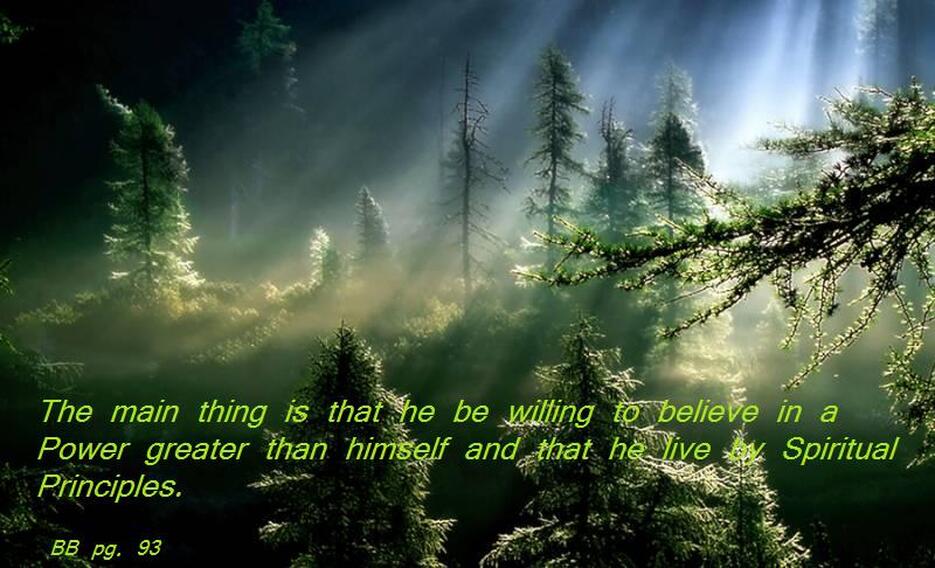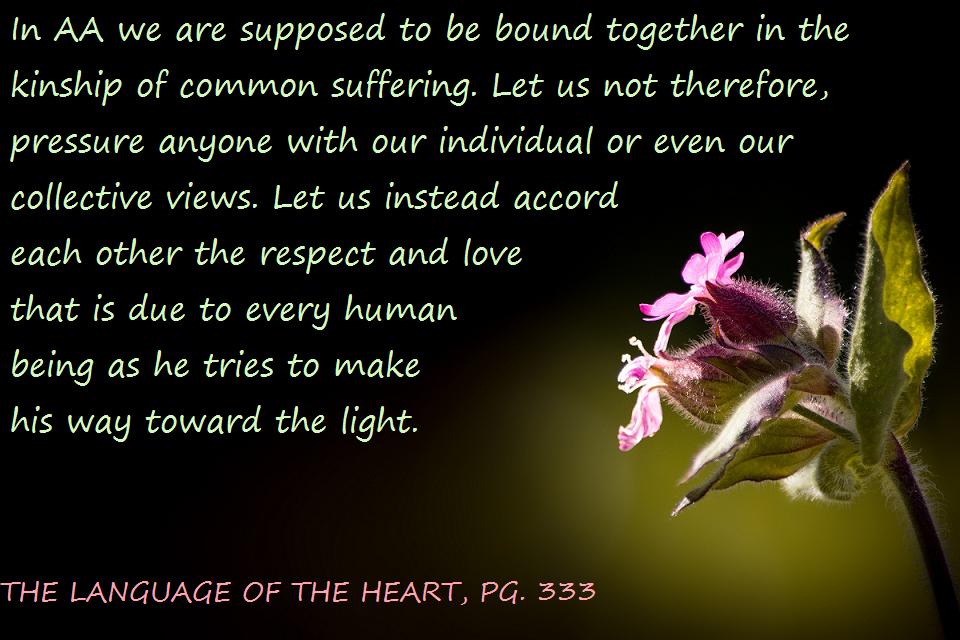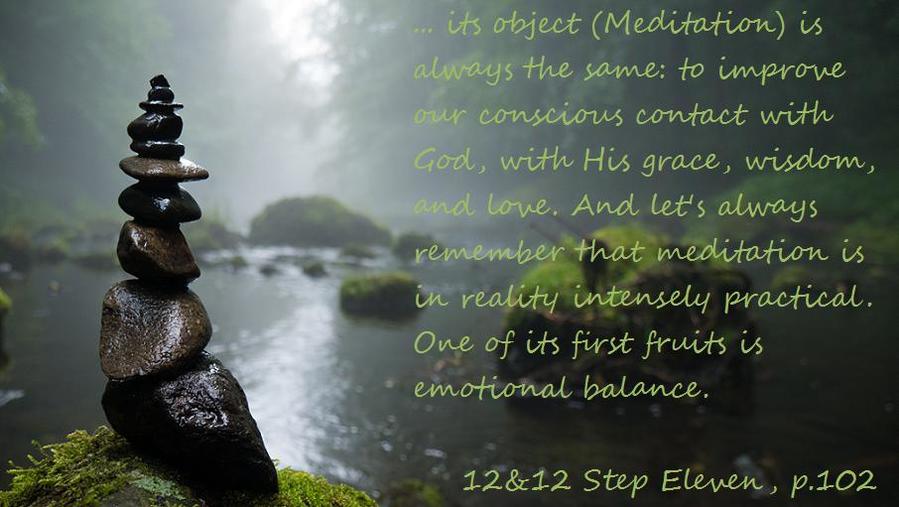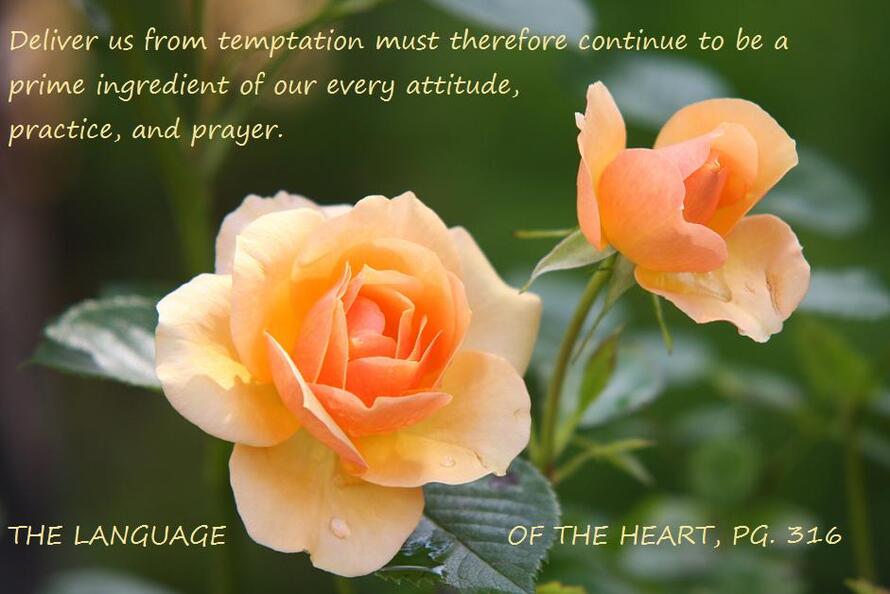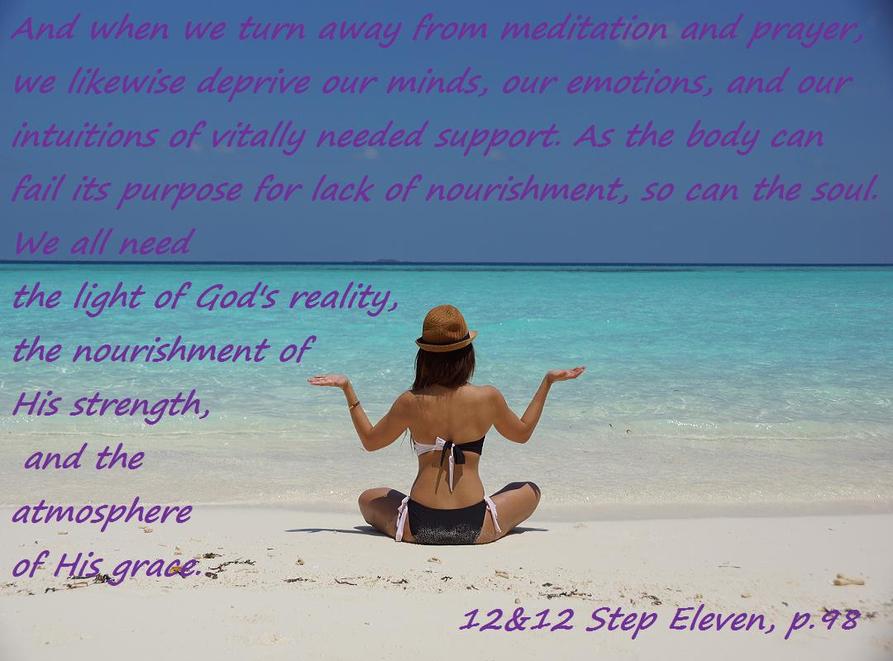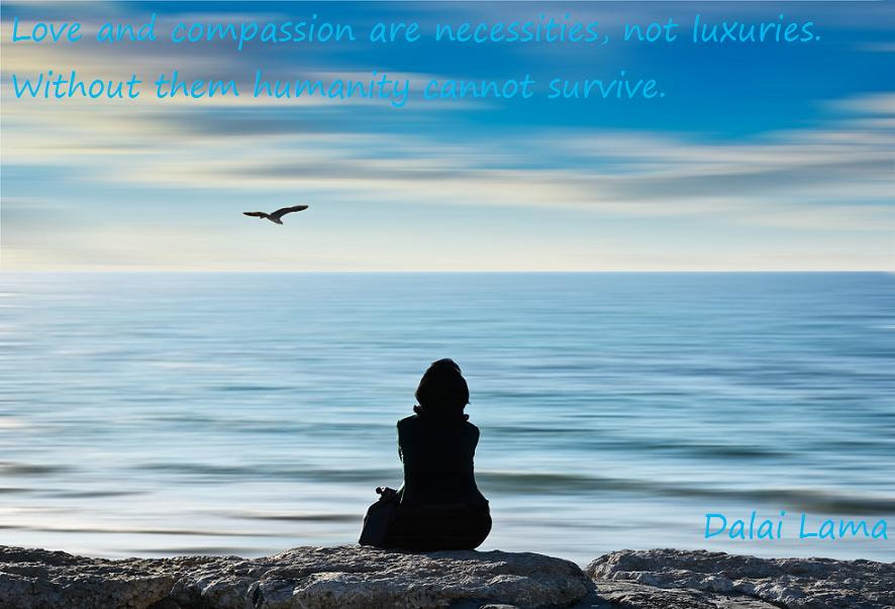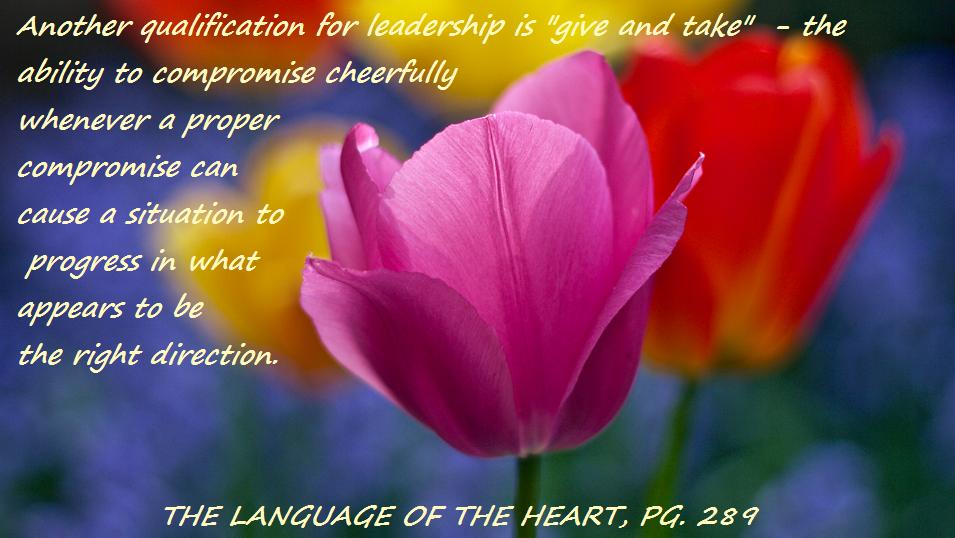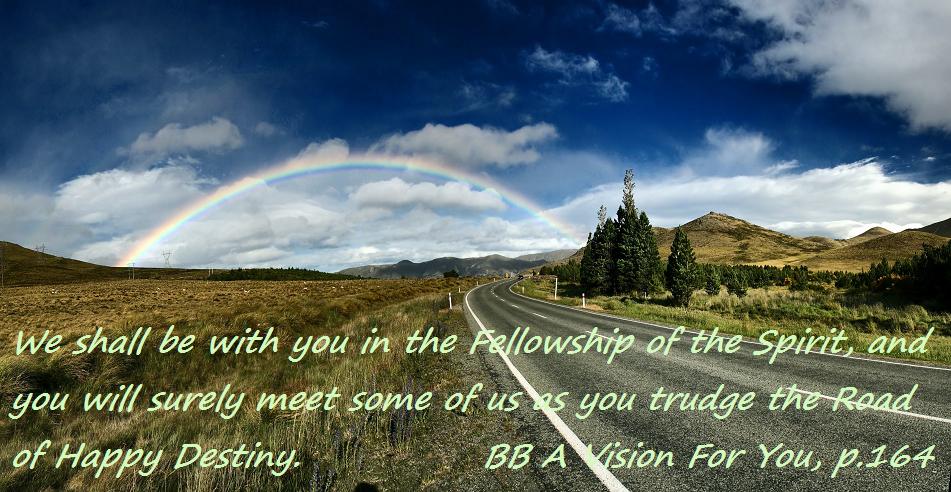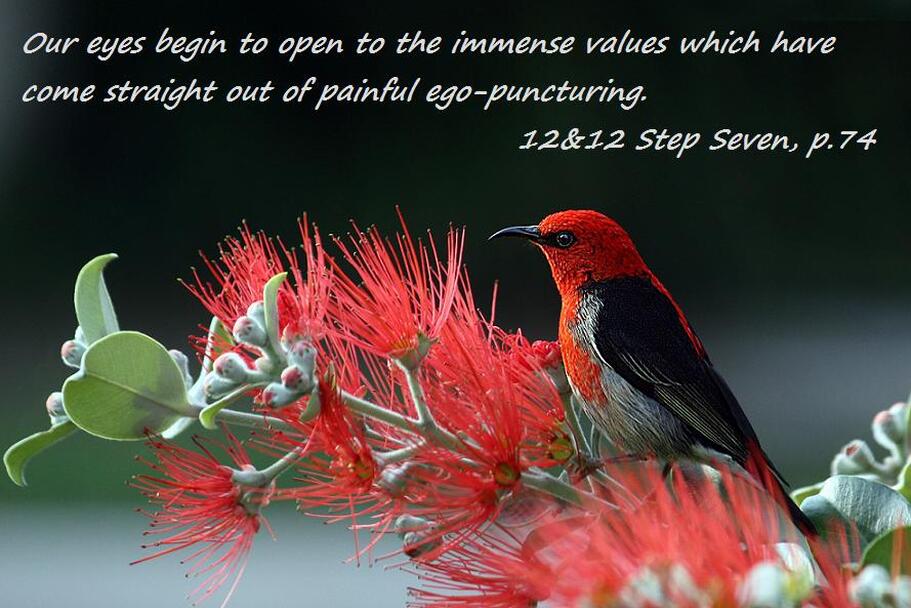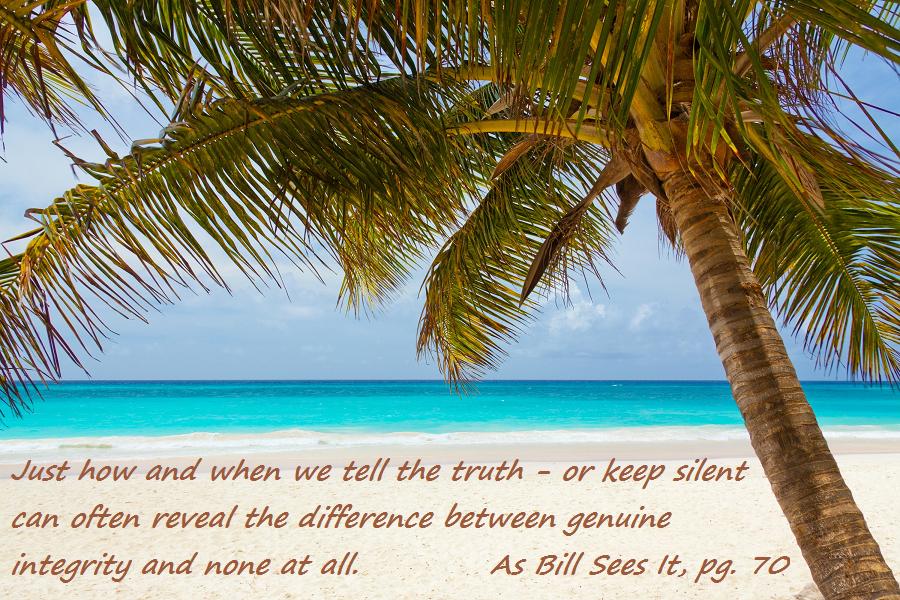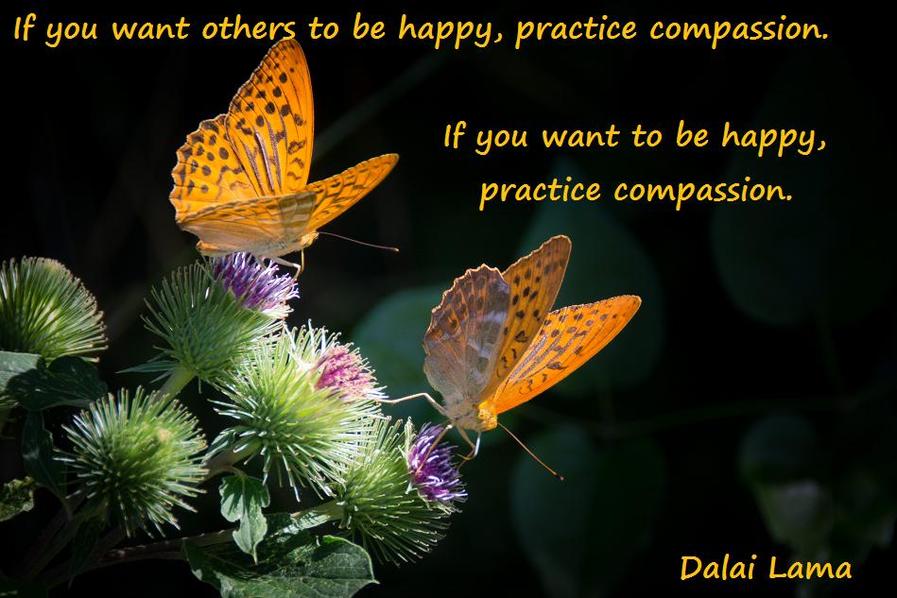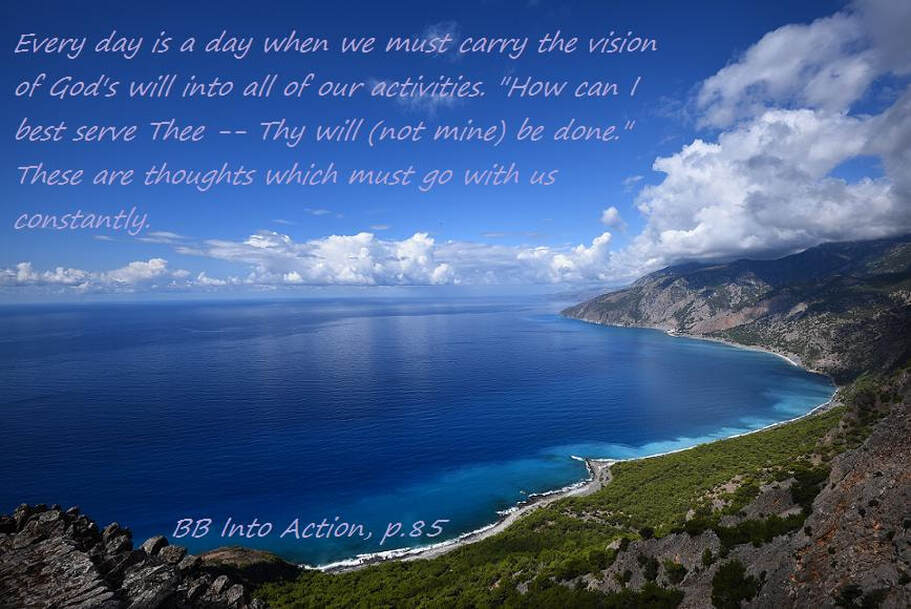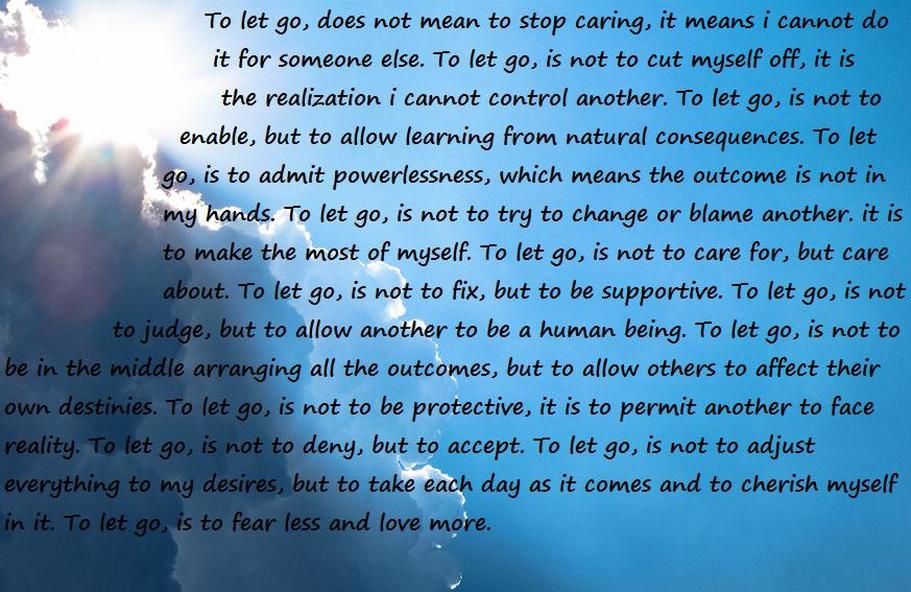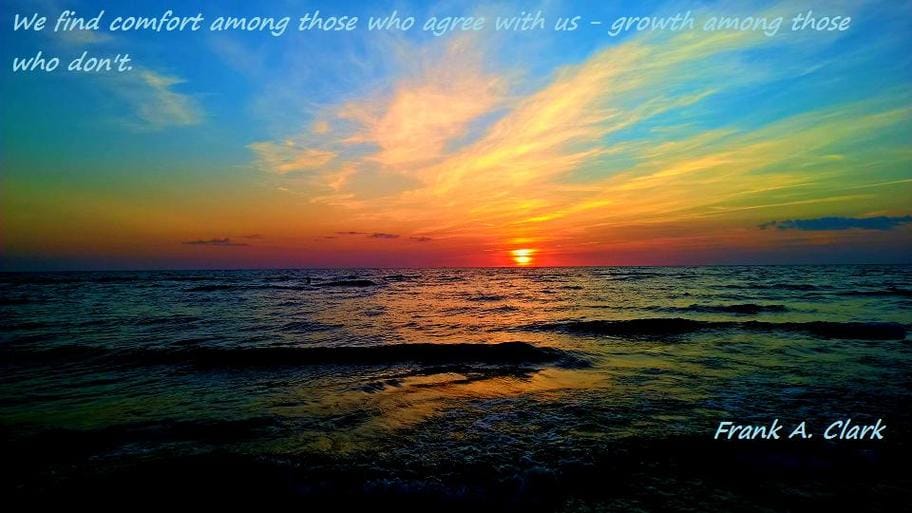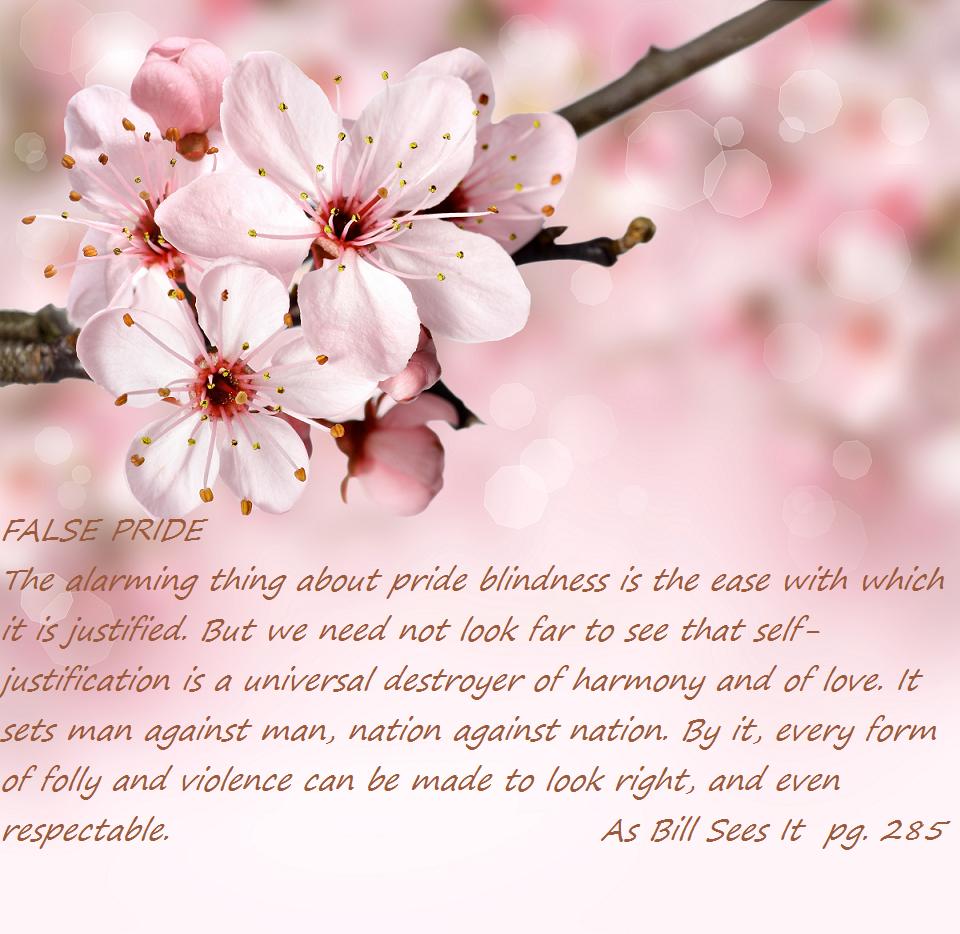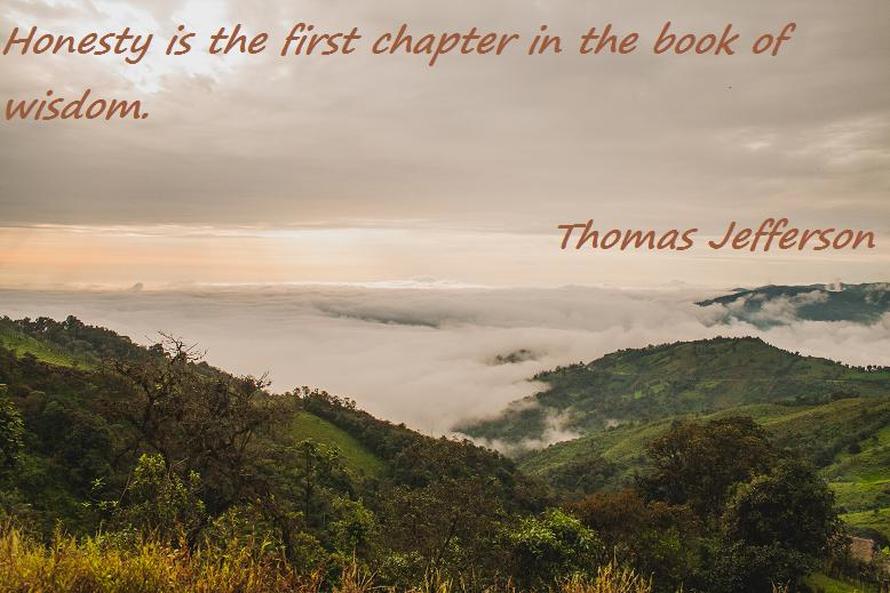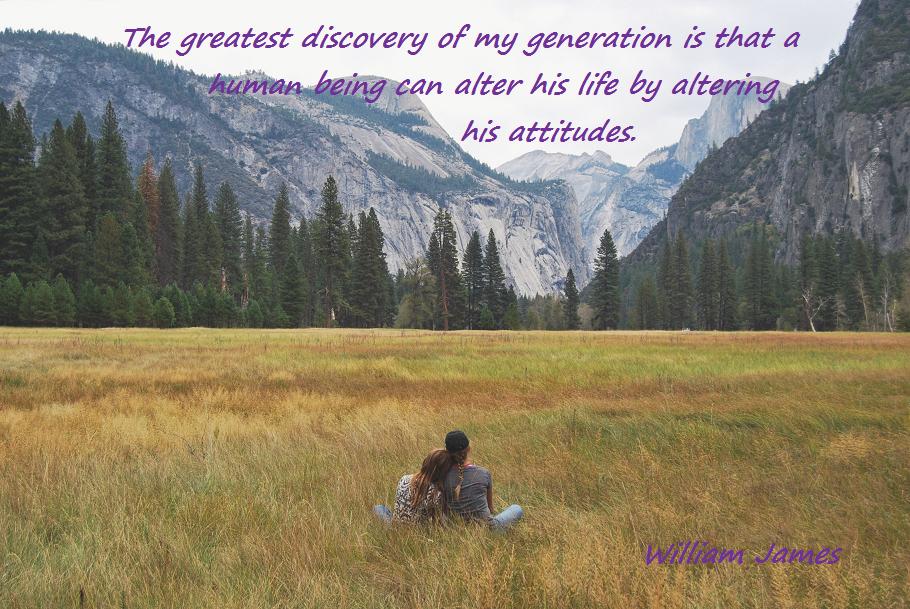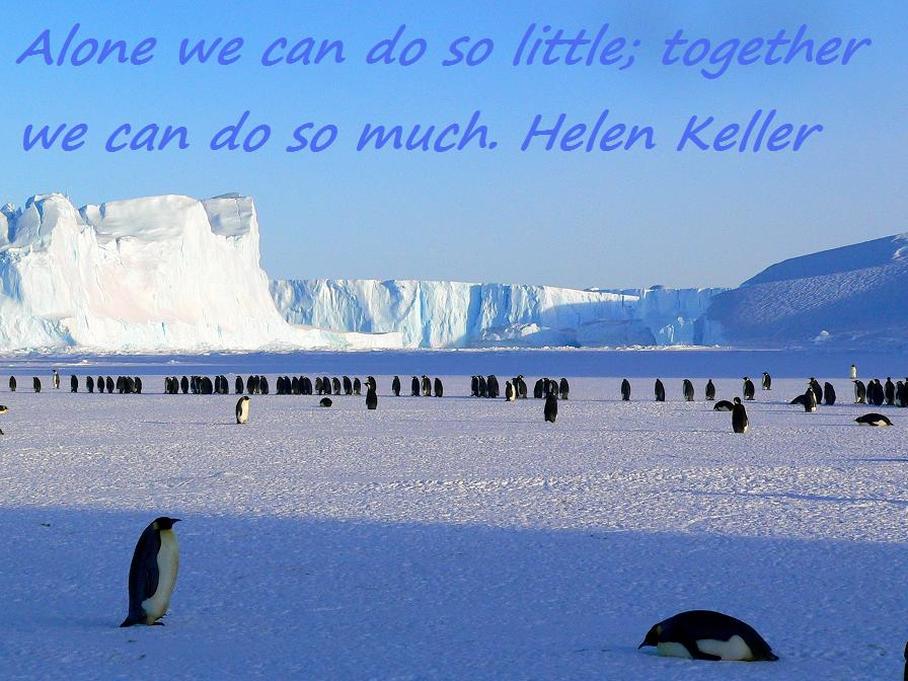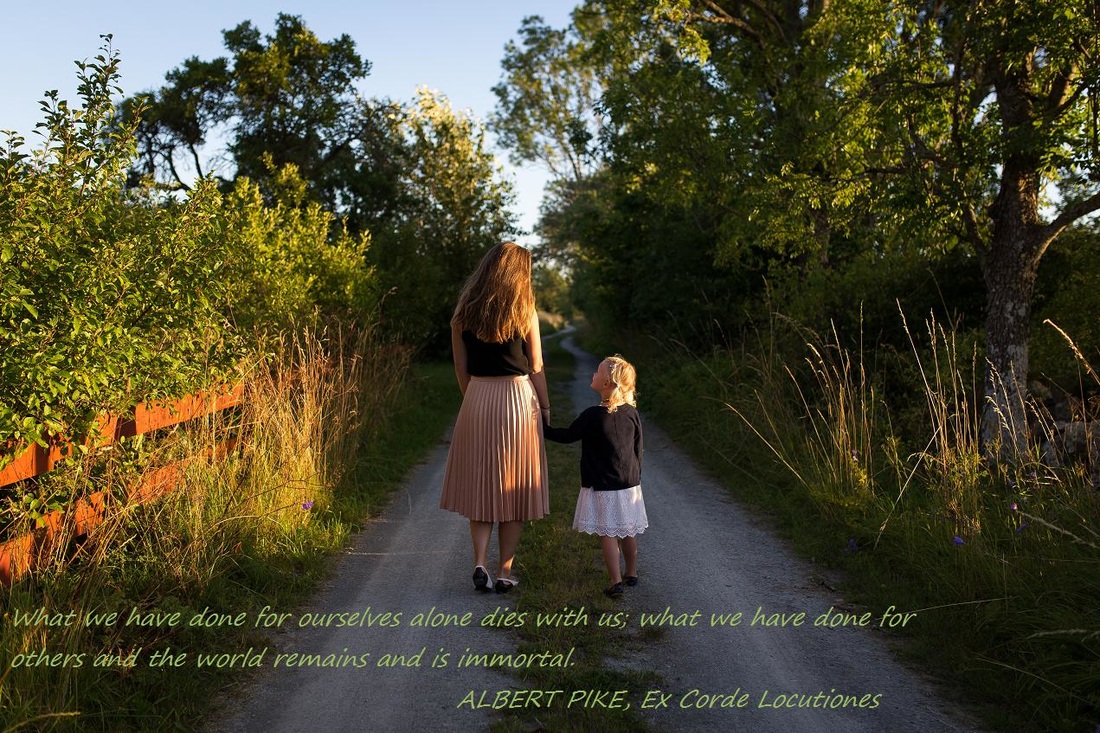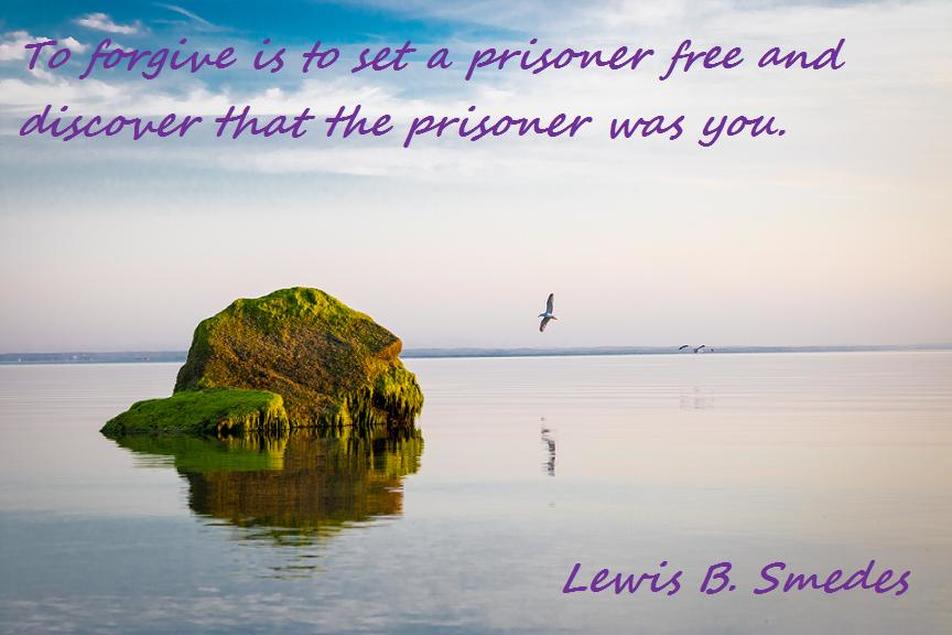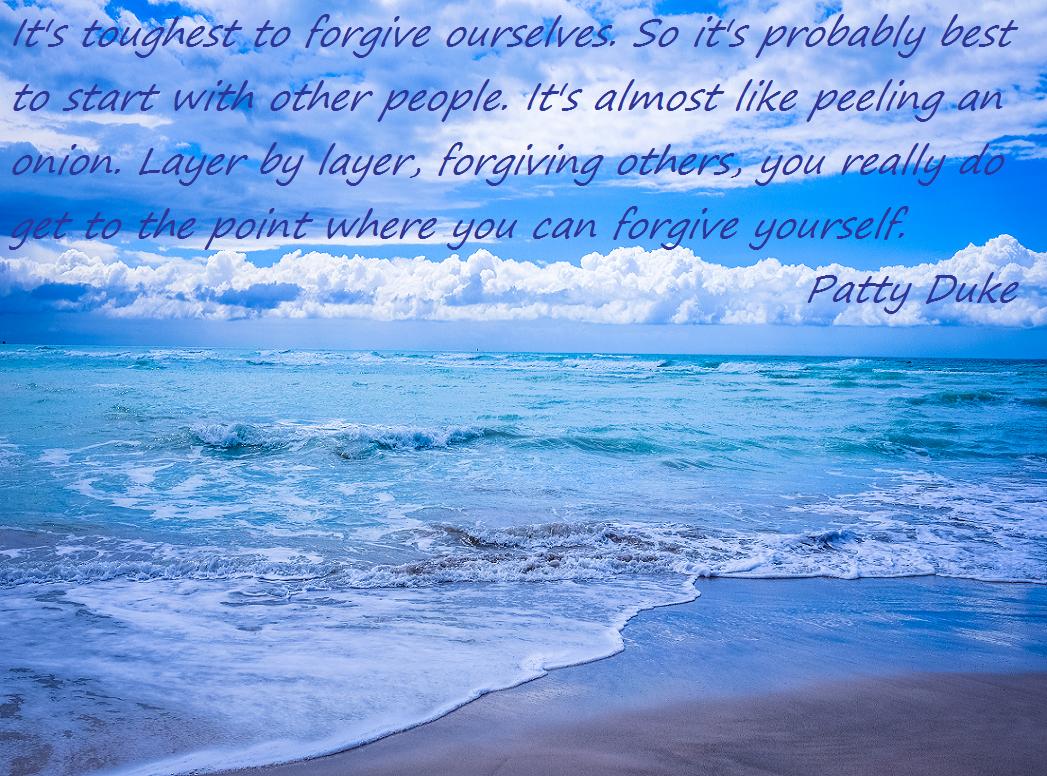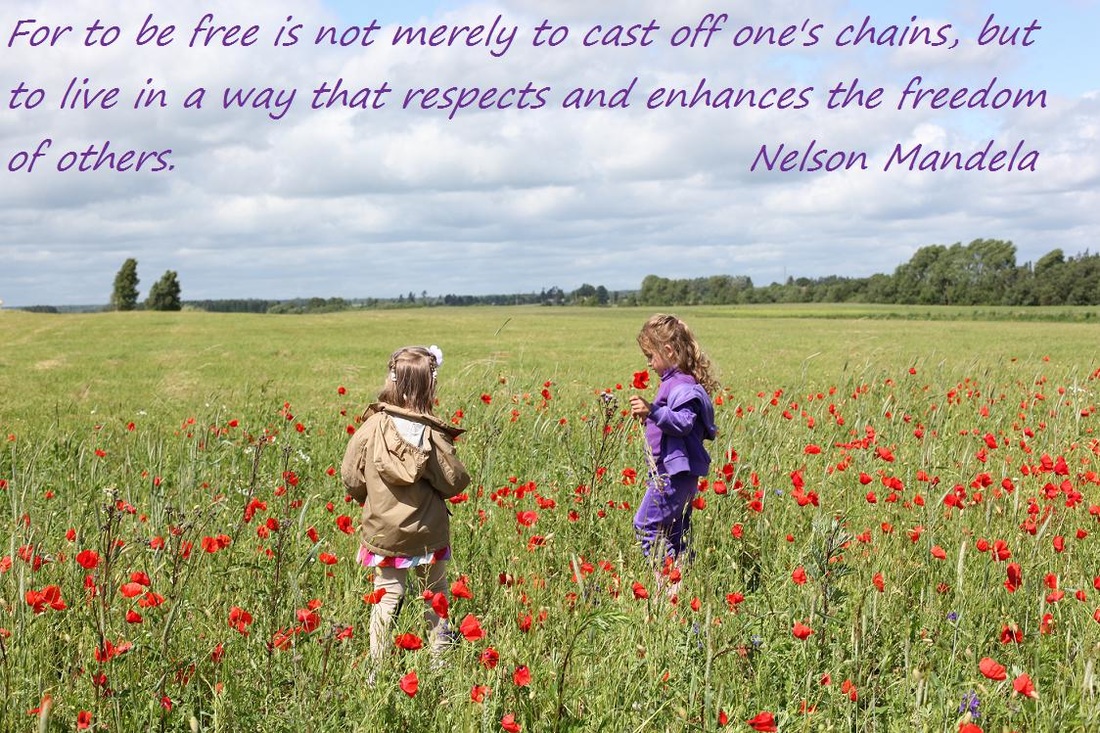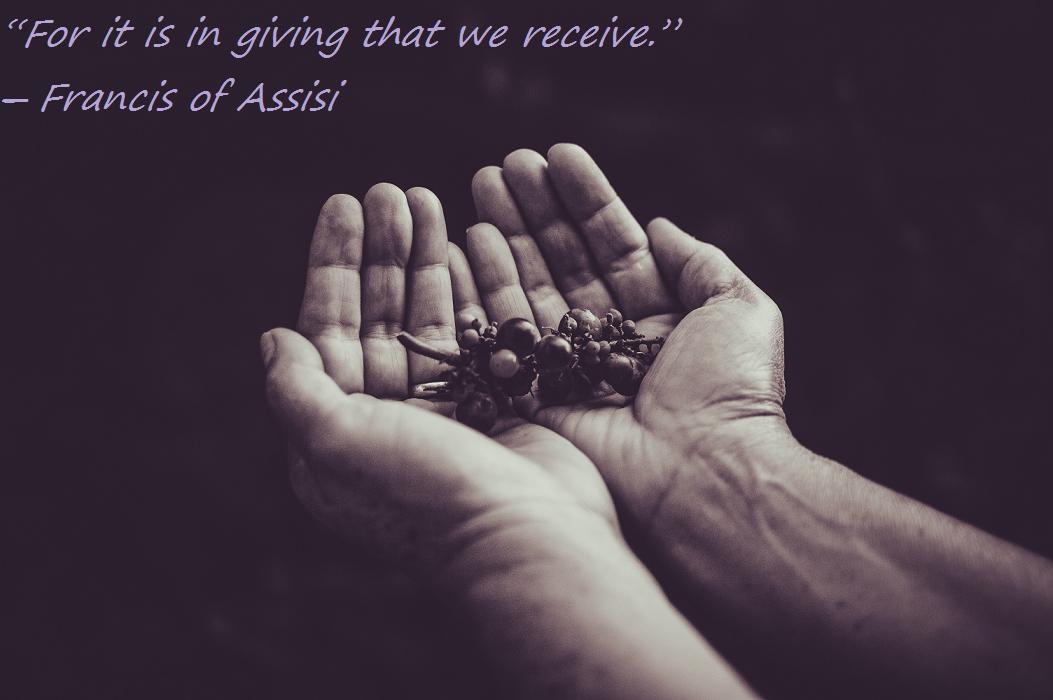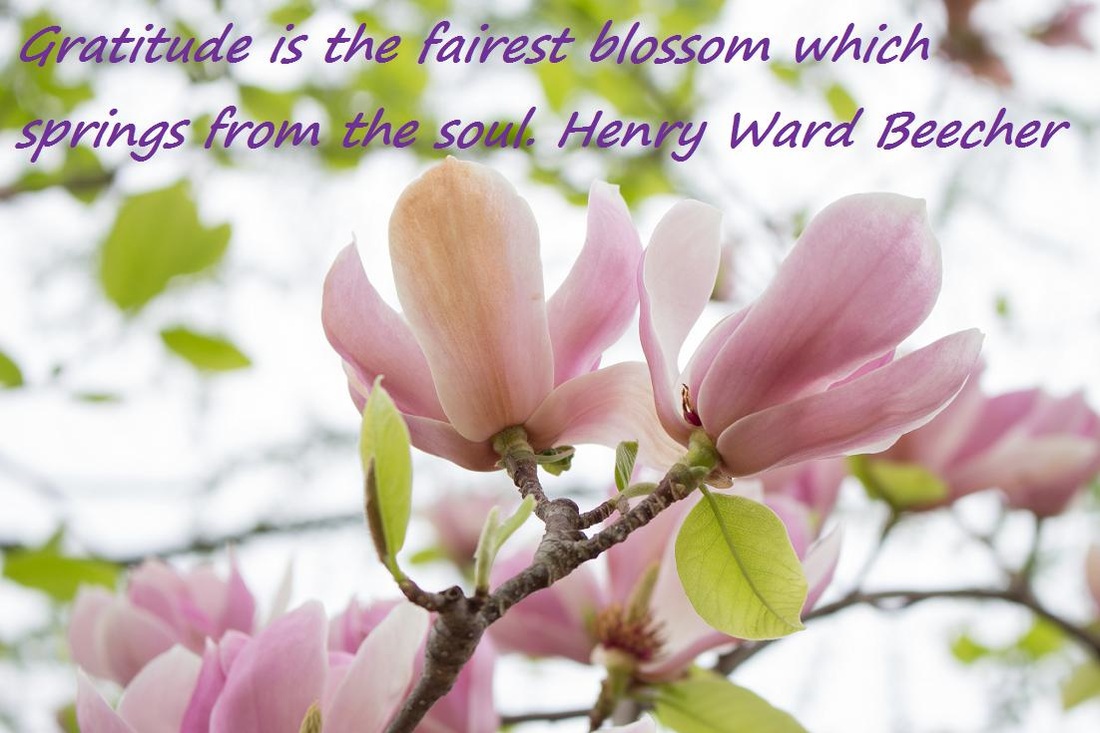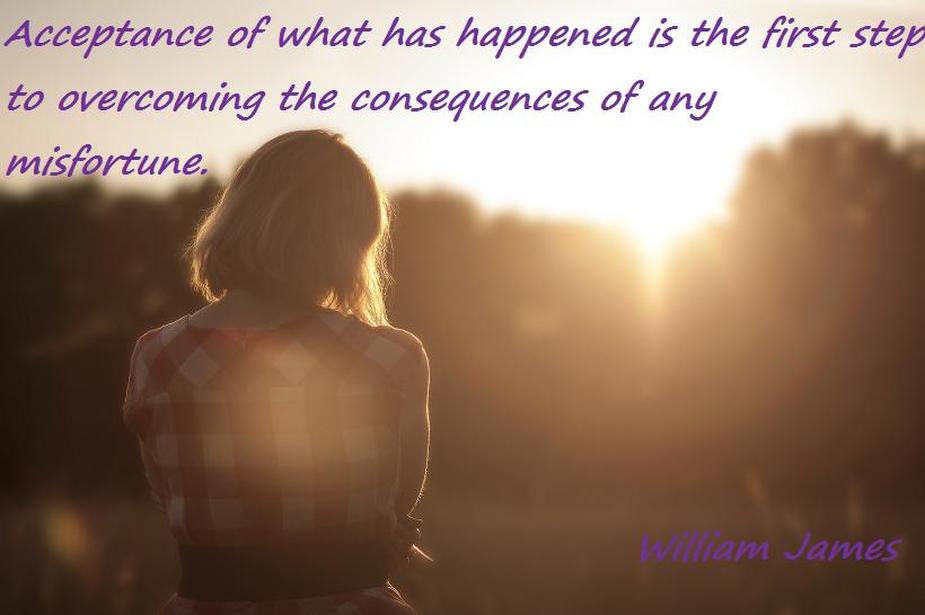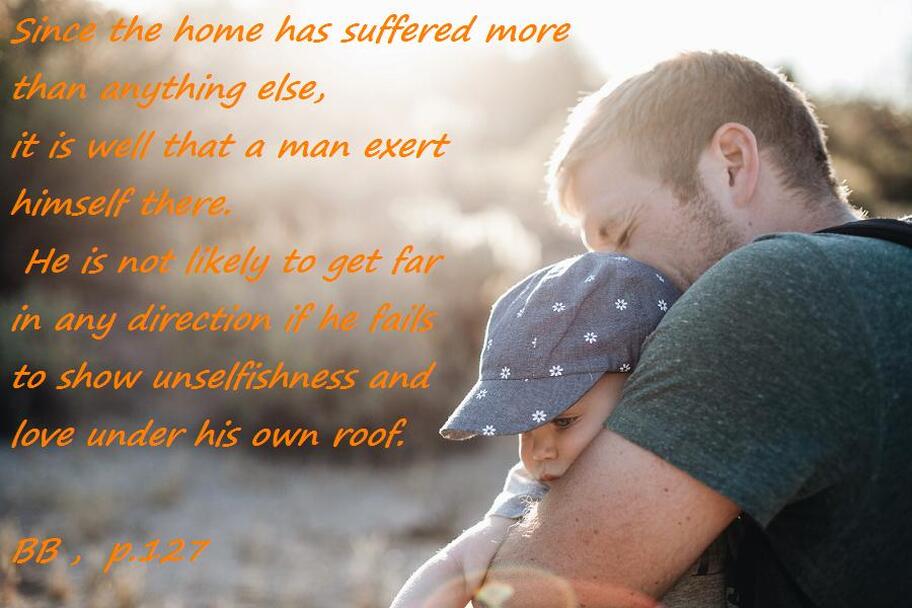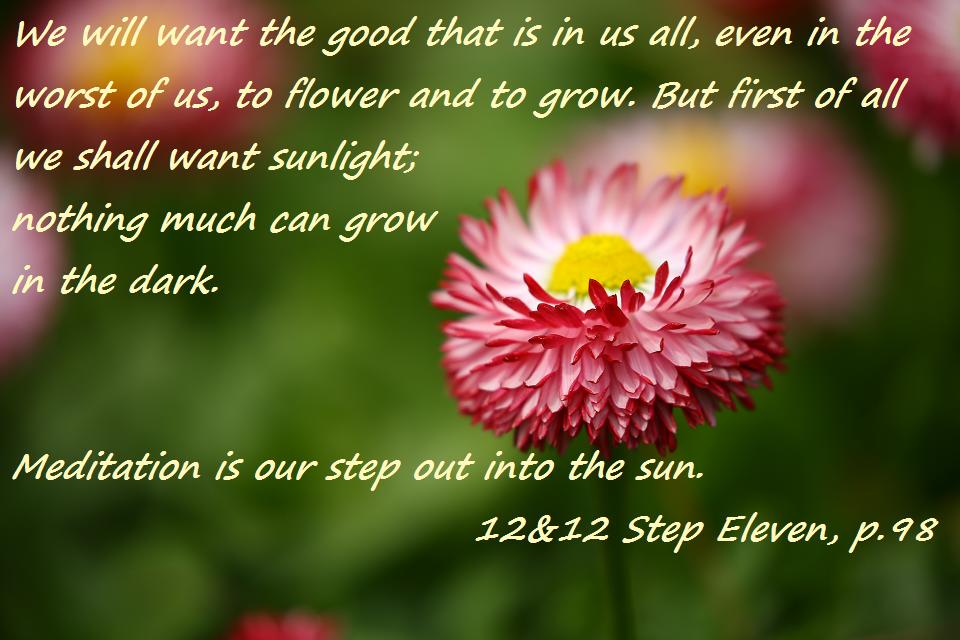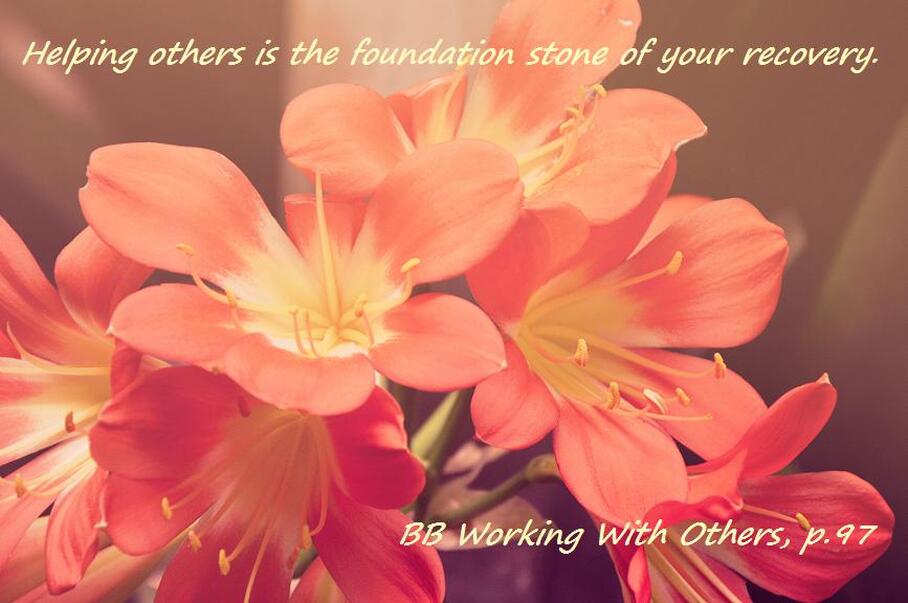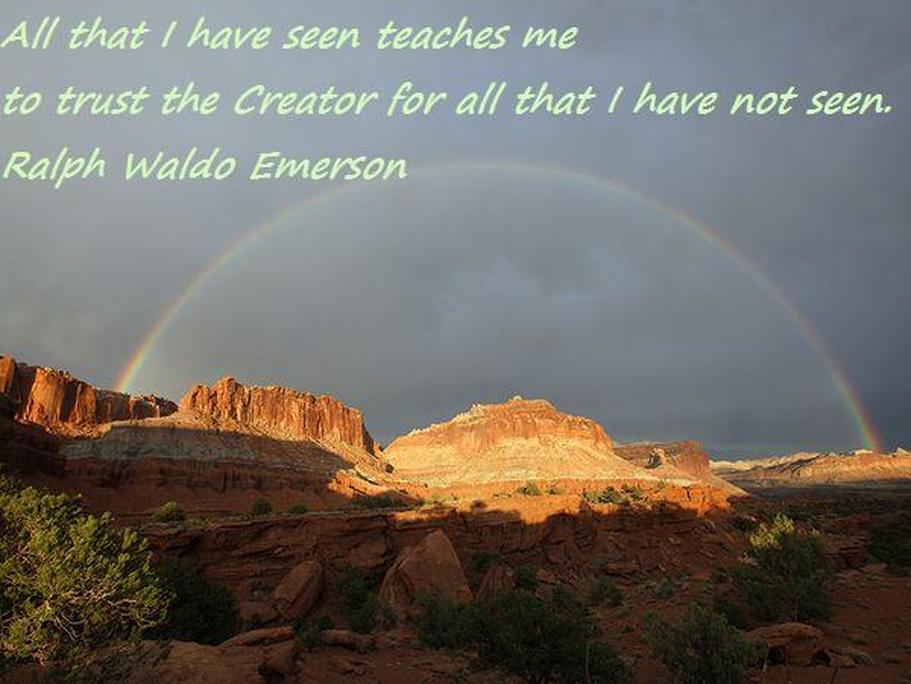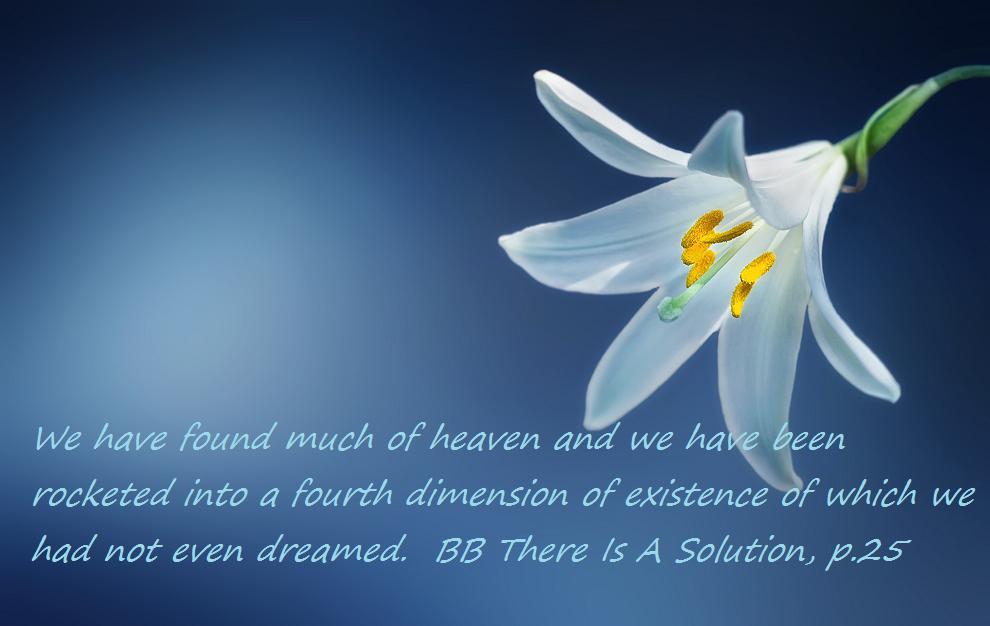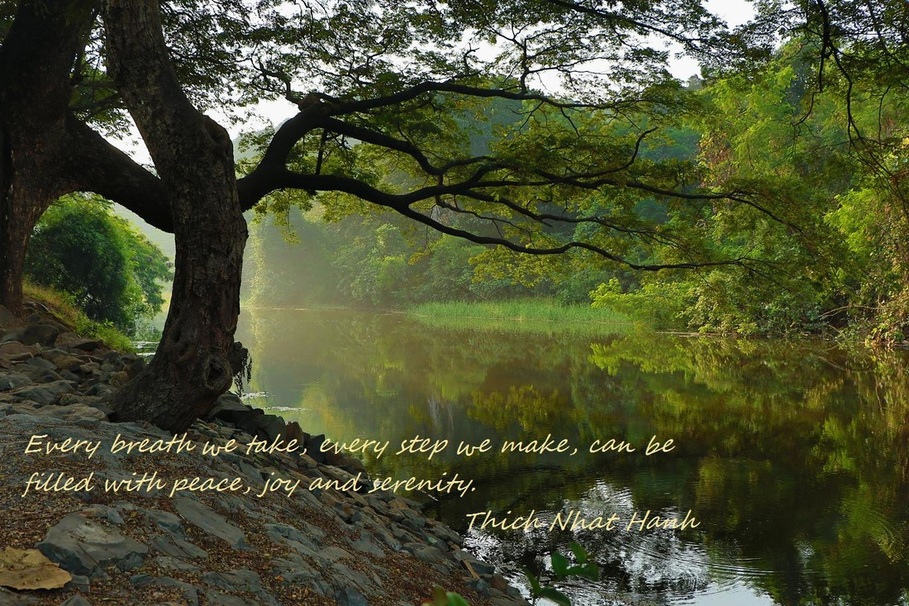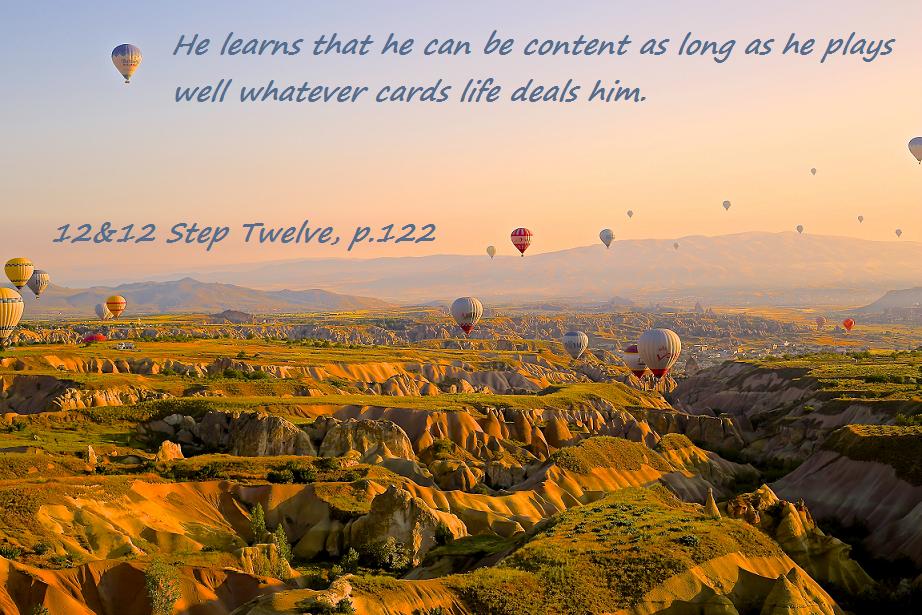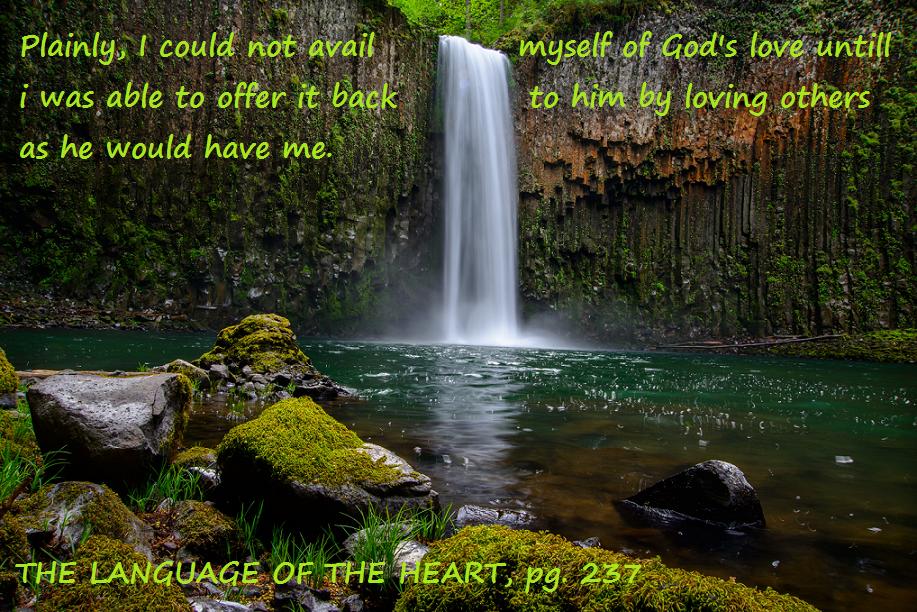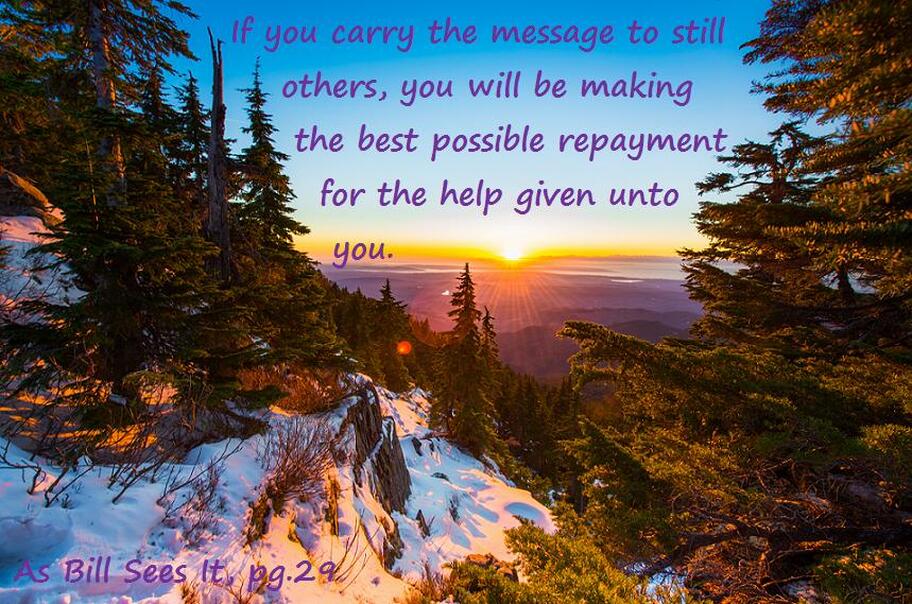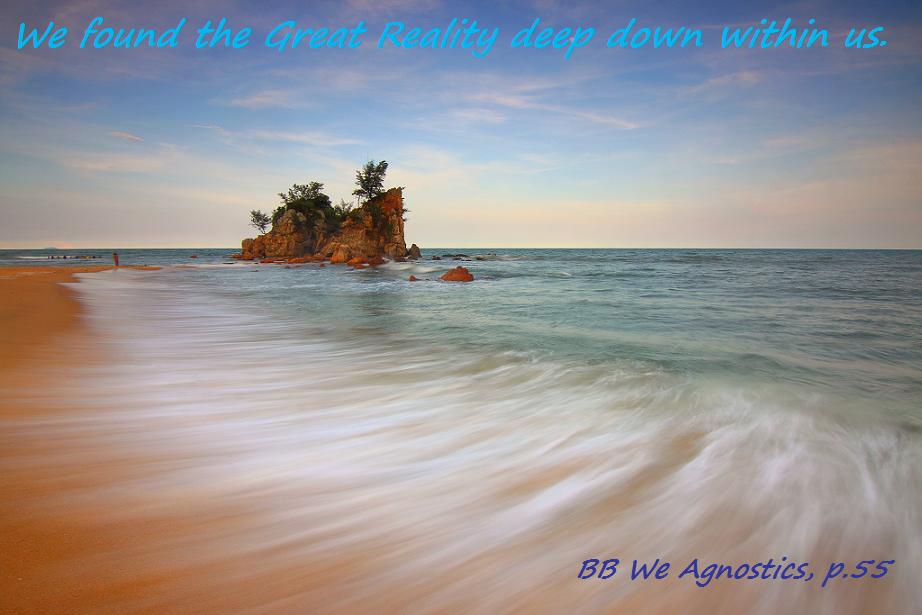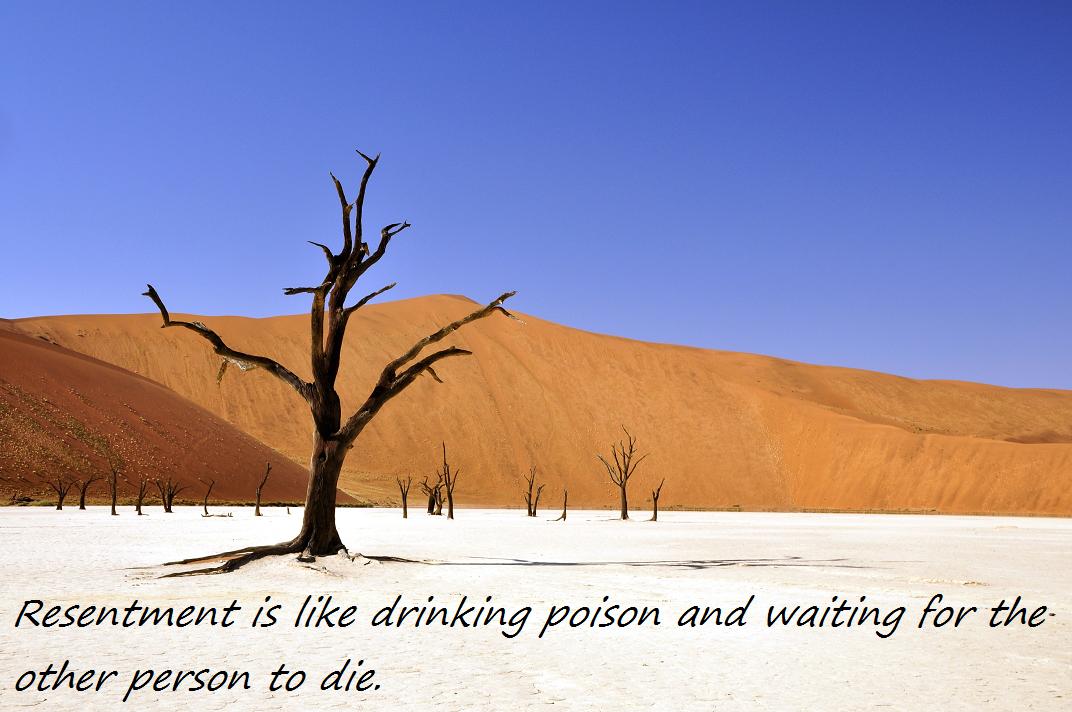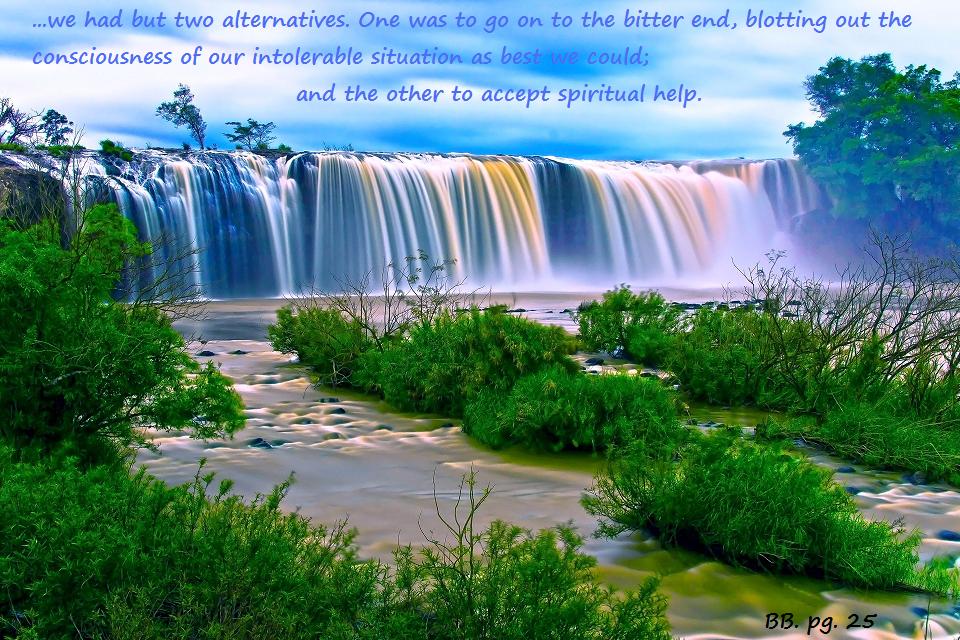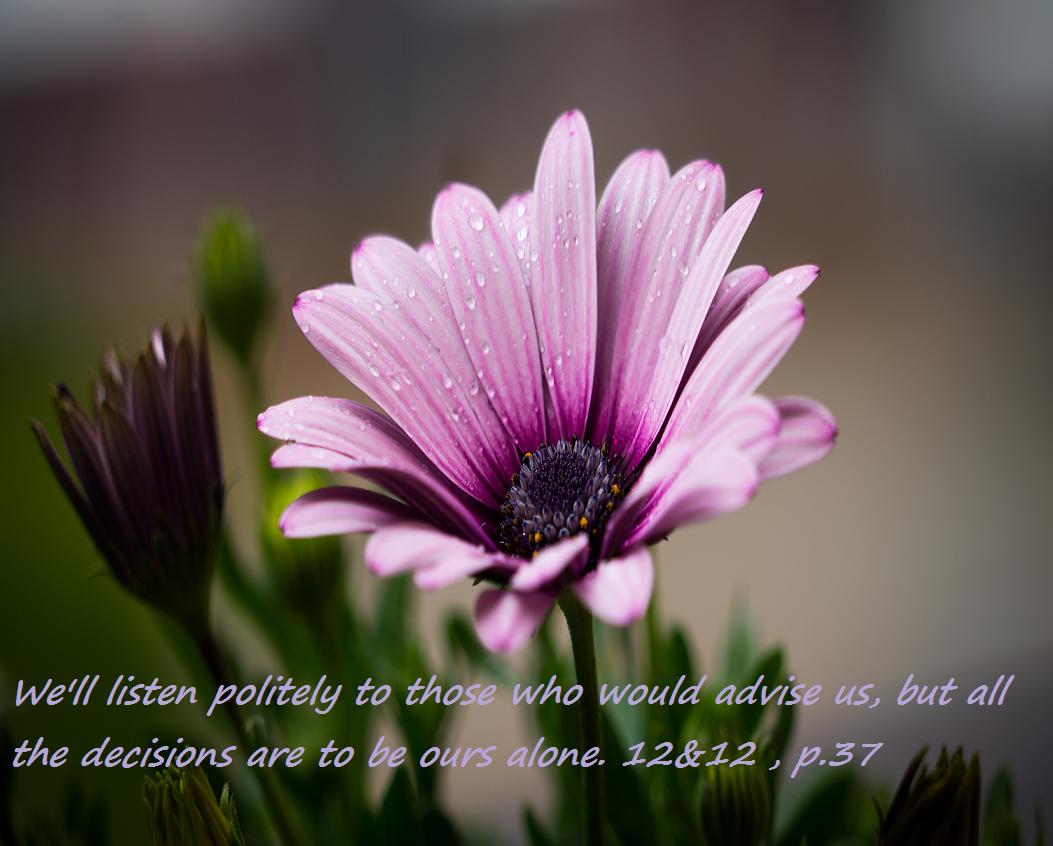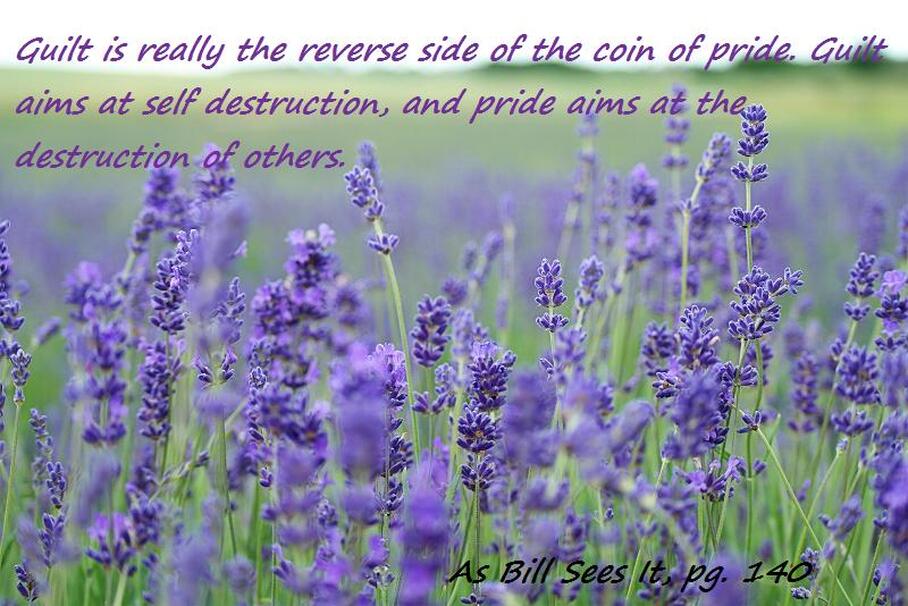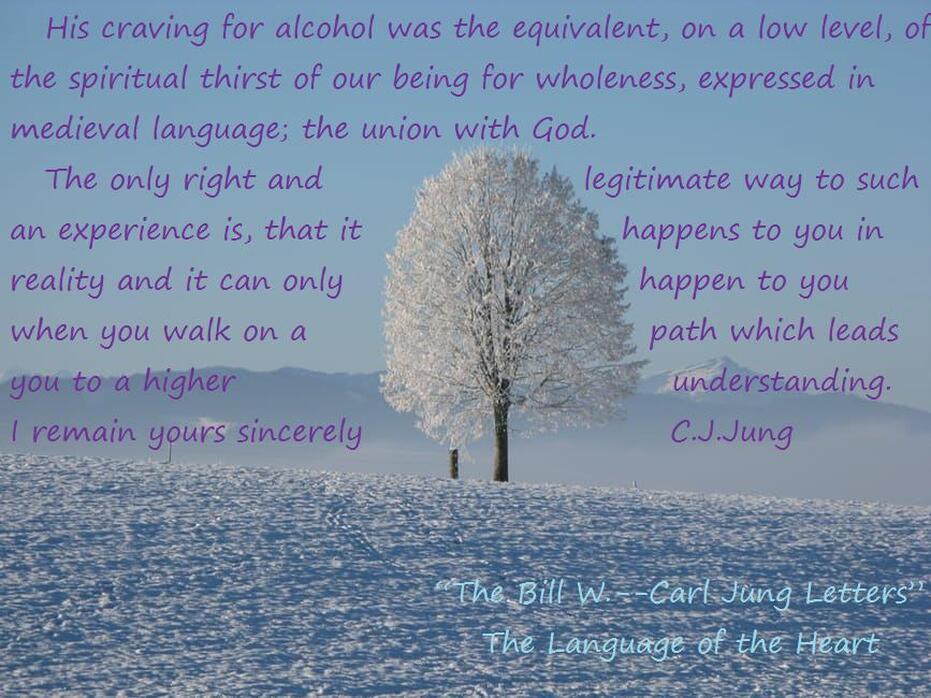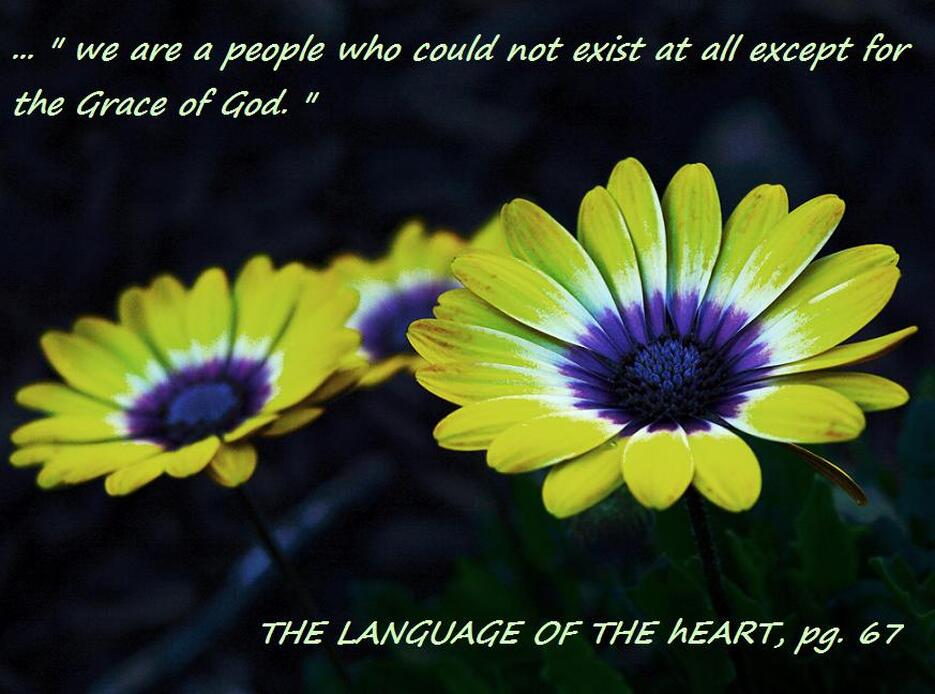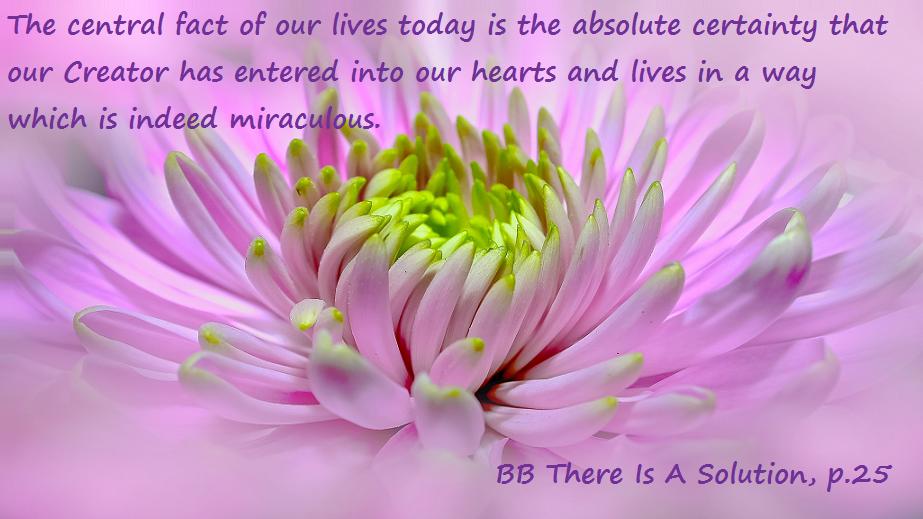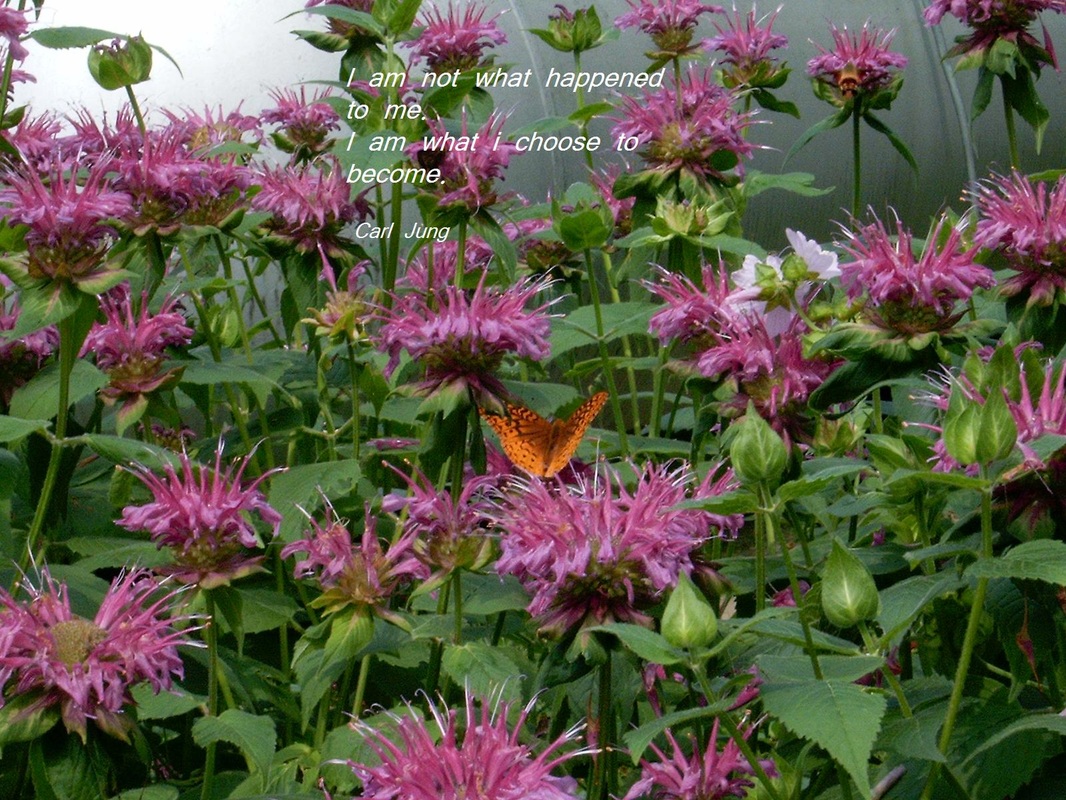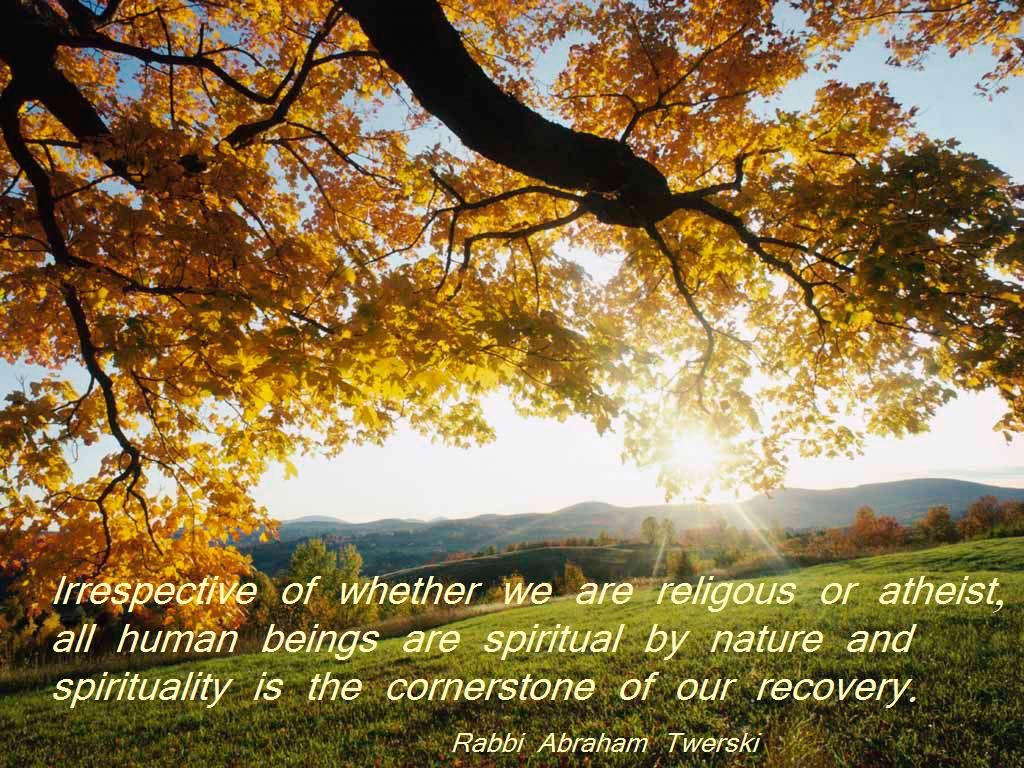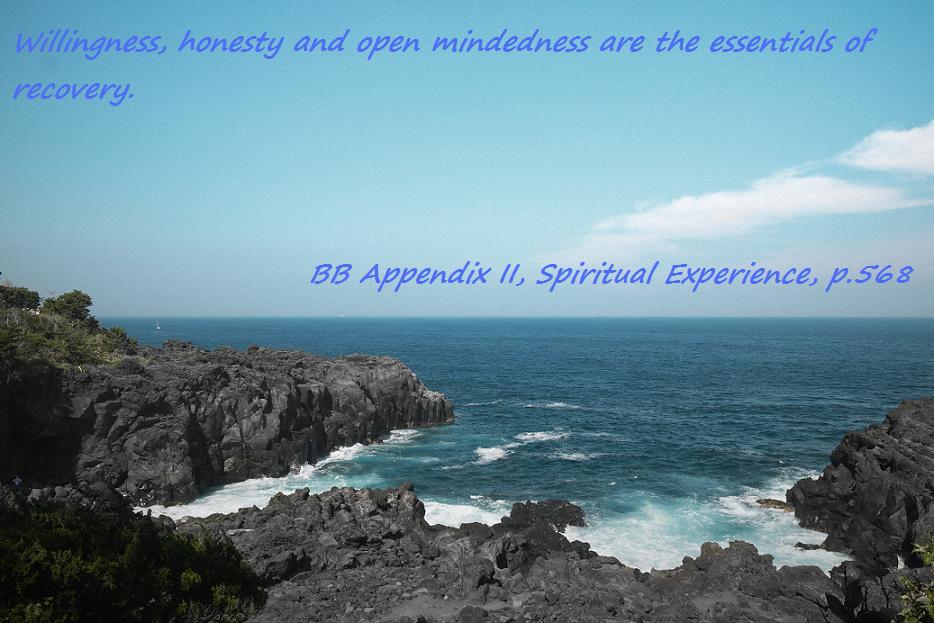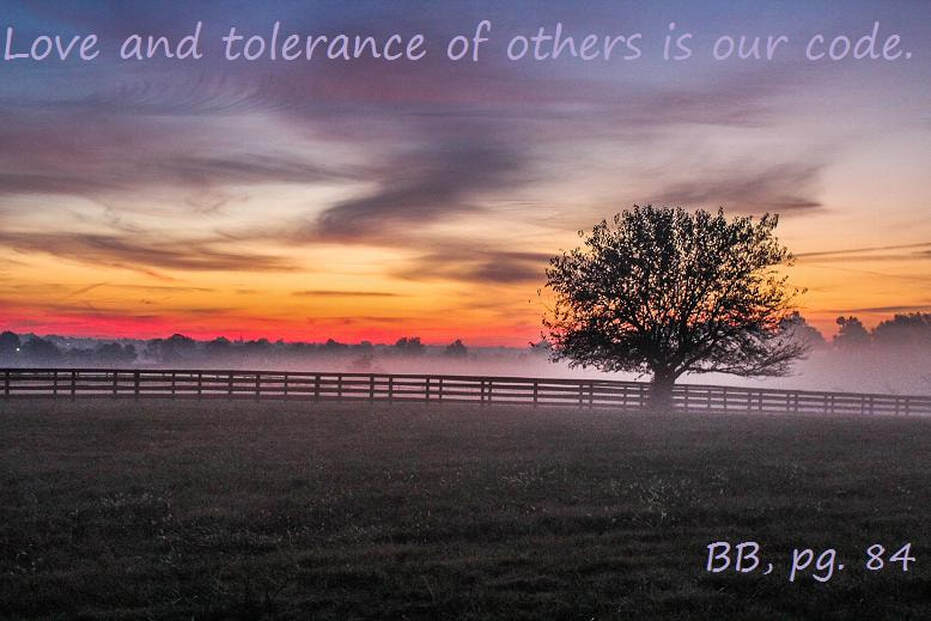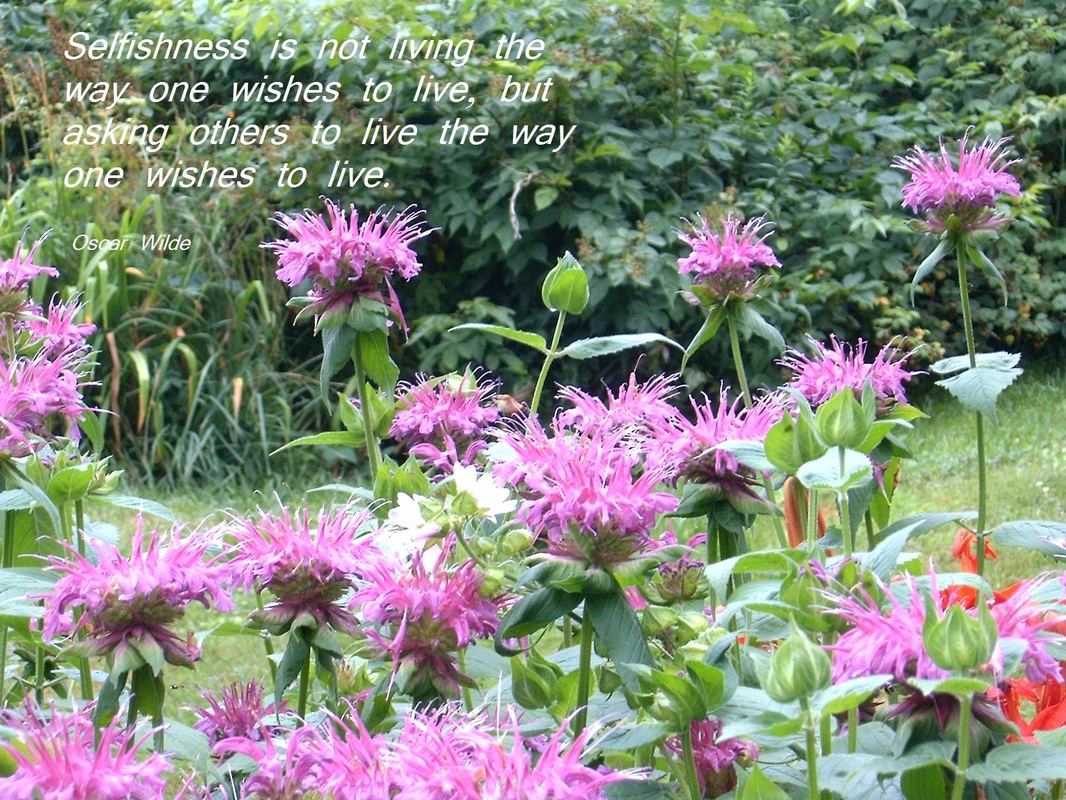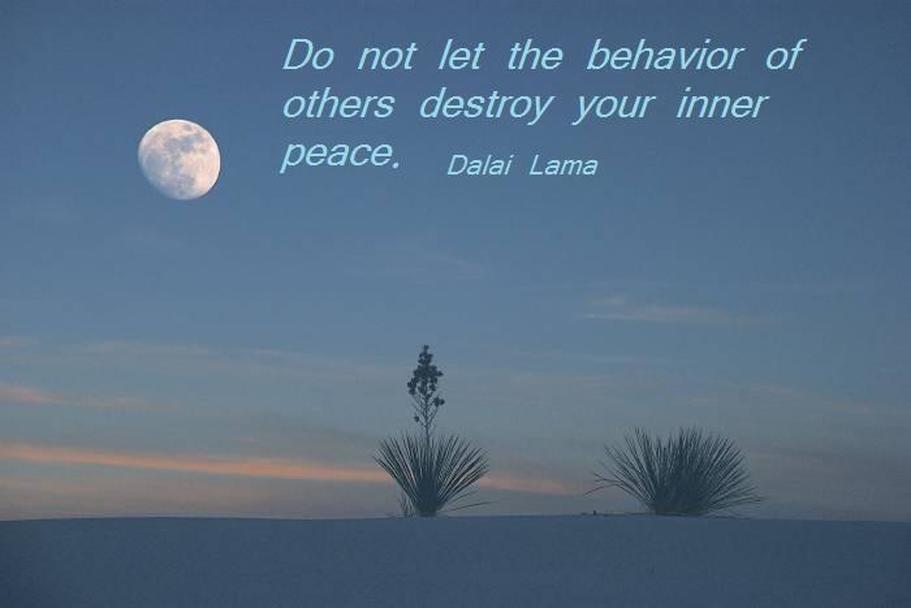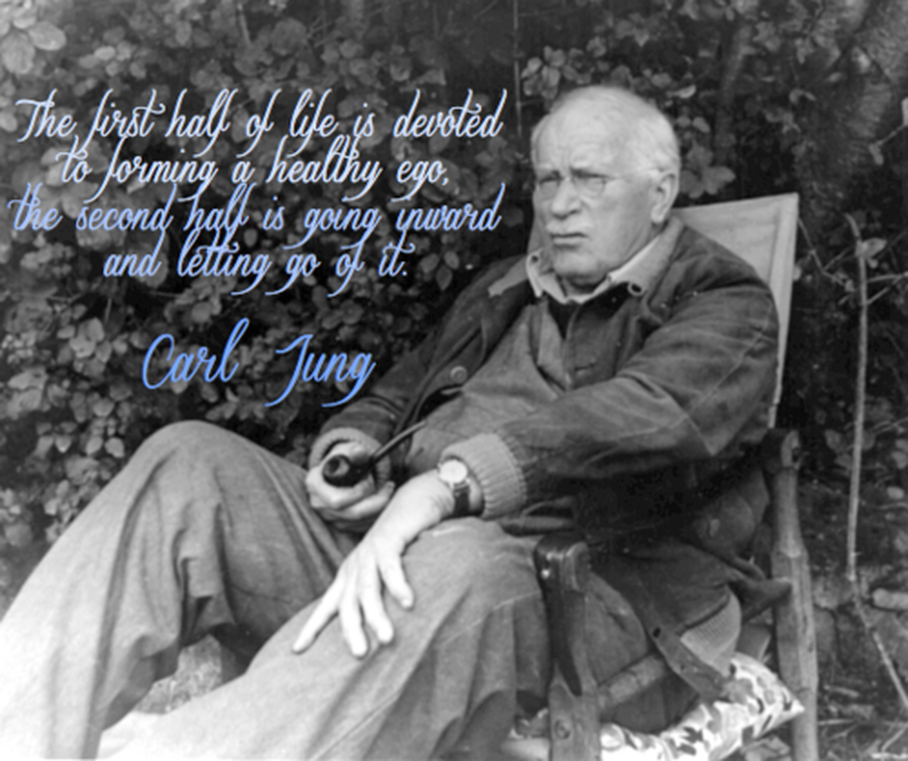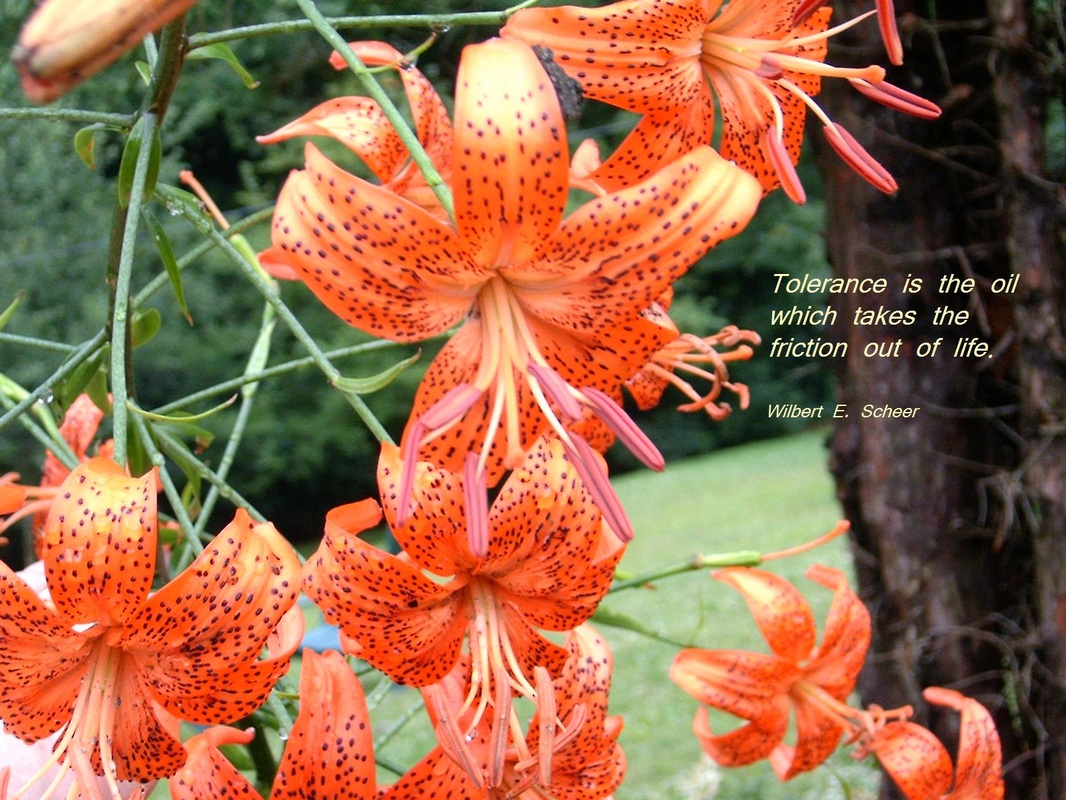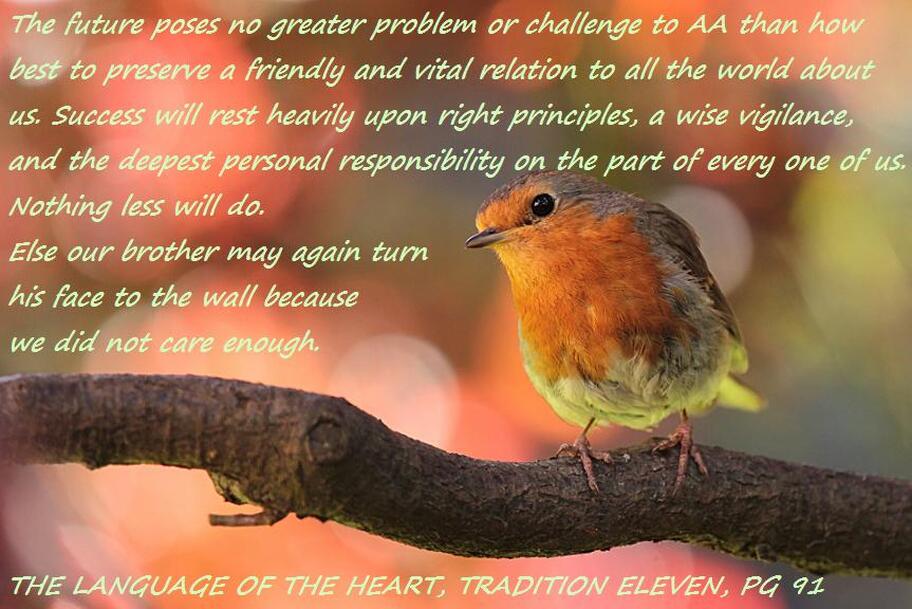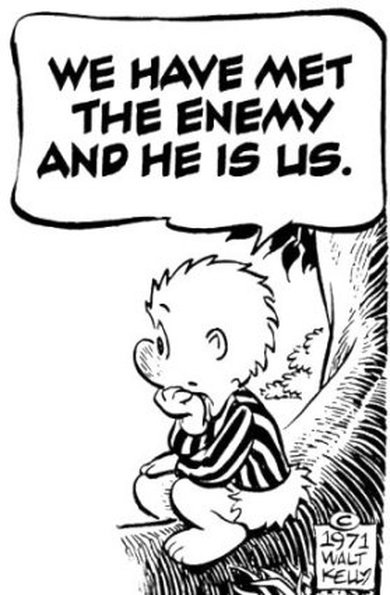We realize we know only a little. God will constantly disclose more to you and to us. Ask him in your morning meditation what you can do each day for the man or woman who is still sick. The answers will come, if your own house is in order.
On awakening let us think about the twenty-four hours ahead. We consider our plans for the day. Before we begin, we ask God to direct our thinking, especially asking that it be divorced from self-pity, dishonest or self seeking motives. Under these conditions we can employ our mental faculties with assurance, for after all God gave us brains to use. Our thought-life will be placed on a much higher plane when our thinking is cleared of wrong motives.
In thinking about our day we may face indecision. We may not be able to determine which course to take. Here we ask God for inspiration, an intuitive thought or a decision. We relax and take it easy. We don't struggle. We are often surprised how the right answers come after we have tried this for a while.
We usually conclude the period of meditation with a prayer that we be shown all through the day what our next step is to be, that we be given whatever we need to take care of such problems. We ask especially for freedom from self-will, and are careful to make no request for ourselves only. We may ask for ourselves, however, if others will be helped. We are careful never to pray for our own selfish ends.
In thinking about our day we may face indecision. We may not be able to determine which course to take. Here we ask God for inspiration, an intuitive thought or a decision. We relax and take it easy. We don't struggle. We are often surprised how the right answers come after we have tried this for a while.
We usually conclude the period of meditation with a prayer that we be shown all through the day what our next step is to be, that we be given whatever we need to take care of such problems. We ask especially for freedom from self-will, and are careful to make no request for ourselves only. We may ask for ourselves, however, if others will be helped. We are careful never to pray for our own selfish ends.
As we go through the day we pause, when agitated or doubtful, and ask for the right thought or action. We constantly remind ourselves we are no longer running the show, humbly saying to ourselves many times each day " Thy will be done. " We are then in much less danger of excitement, fear, anger, worry, self-pity or foolish decisions. We become much more efficient. We do not tire so easily, for we are not burning up energy foolishly as we did when we were trying to arrange life to suit ourselves.
When we retire at night, we constructively review our day. Were we resentful, selfish, dishonest or afraid? Do we owe an apology? Have we kept something to ourselves which should be discussed with another person at once? Were we kind and loving toward all? What could we have done better? Were we thinking of ourselves most of the time? Or were we thinking of what we could do for others, of what we could pack into the stream of life? But we must be careful not to drift into worry, remorse or morbid reflection, for that would diminish our usefulness to others. After making our review we ask God's forgiveness and inquire what corrective measures should be taken.
The actual experience of meditation and prayer across the centuries is, of course, immense. The world's libraries and places of worship are a treasure trove for all seekers. It is to be hoped that every A.A. who has a religious connection which emphasizes meditation will return to the practice of that devotion as never before. But what about the rest of us who, less fortunate, don't even know how to begin ?
Well, we might start like this. First let's look at a really good prayer. We won't have far to seek; the great men and women of all religions have left us a wonderful supply. Here let us consider one that is a classic.
Its author was a man who for several hundred years now has been rated as a saint. We won't be biased or scared off by that fact, because although he was not an alcoholic he did, like us, go through the emotional wringer. And as he came out the other side of that painful experience, this prayer was his expression of what he could then see, feel, and wish to become:
Well, we might start like this. First let's look at a really good prayer. We won't have far to seek; the great men and women of all religions have left us a wonderful supply. Here let us consider one that is a classic.
Its author was a man who for several hundred years now has been rated as a saint. We won't be biased or scared off by that fact, because although he was not an alcoholic he did, like us, go through the emotional wringer. And as he came out the other side of that painful experience, this prayer was his expression of what he could then see, feel, and wish to become:
We might now reread this prayer several times very slowly, savoring every word and trying to take in the deep meaning of each phrase and idea.
As though lying upon a sunlit beach, let us relax and breath deeply of the spiritual atmosphere with which the Grace of this prayer surrounds us. Let us become willing to partake and become strengthened and lifted up by the sheer spiritual power, beauty, and love of which these magnificent words are the carriers. Let us look now upon the sea and ponder what it's mystery is; and let us lift our eyes to the far horizon, beyond which we shall seek all those wonders still unseen.
Once more we read our prayer and again try to see what it's inner essence is. We'll think now about the man who first uttered the prayer. First of all, he wanted to become a "channel". Then he asked for the grace to bring love, forgiveness, harmony, truth, faith, hope, light, and joy to every human being he could.
Next came the expression of an aspiration and a hope for himself. He hoped, God willing, that he might be able to find some of these treasures, too. This he would try to do by what he called self-forgetting.
Of course we finally did experiment, and when unexpected results followed, we felt different; in fact we knew different; and so we were sold on meditation and prayer. 12&12 Step Eleven, p.97
Note: so keep experimenting, our ears are all a little different, find the sounds that work for you.
Note: so keep experimenting, our ears are all a little different, find the sounds that work for you.
Daily Reflection
click ^
Grapevine Quote
click ^
Excerpts reprinted from the Big Book, Alcoholics Anonymous and the Twelve Steps and Twelve Traditions and other A.A. Literature with permission from Alcoholics Anonymous World Services Inc.
Please be aware that we are not responsible for a linked site's privacy policy, tracking technology, computer security, or intellectual property protection. Additionally, we cannot attest to the accuracy, relevancy, timeliness, or completeness of information provided by any linked site.
Proudly powered by Weebly
